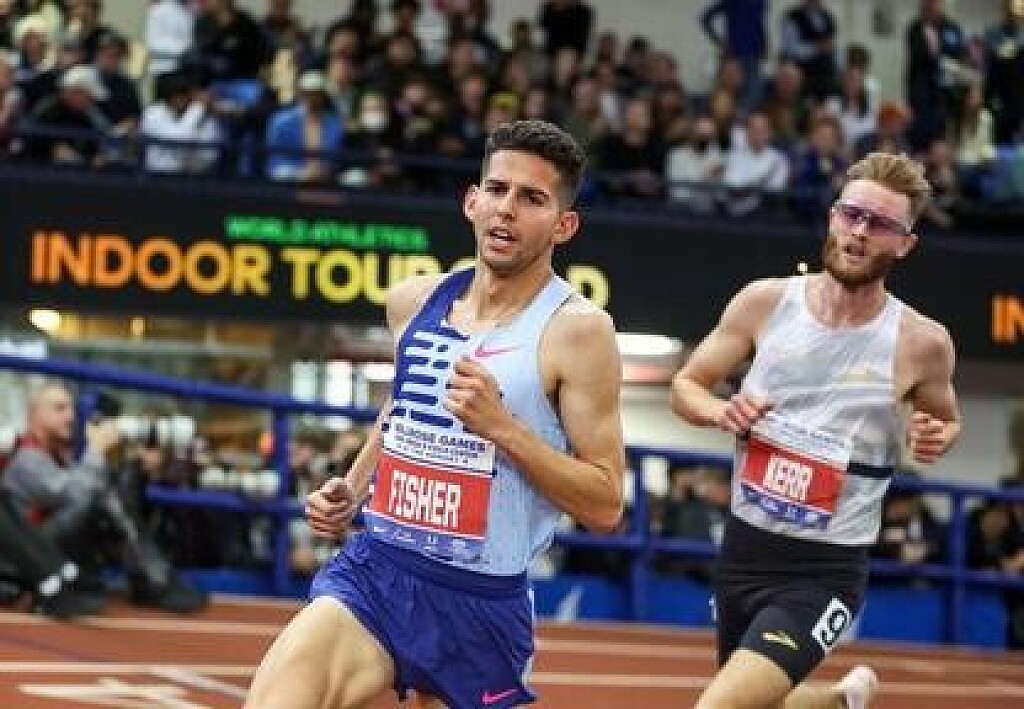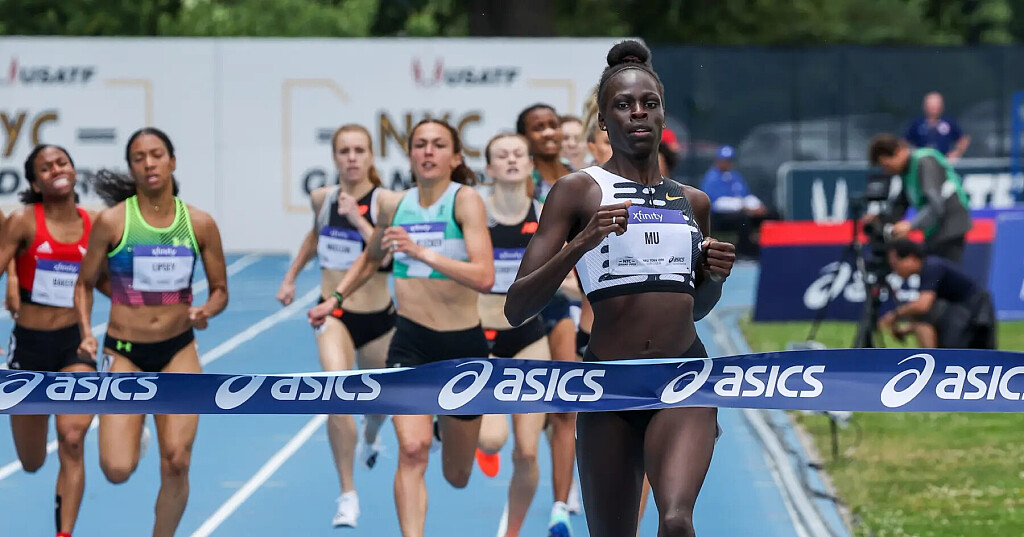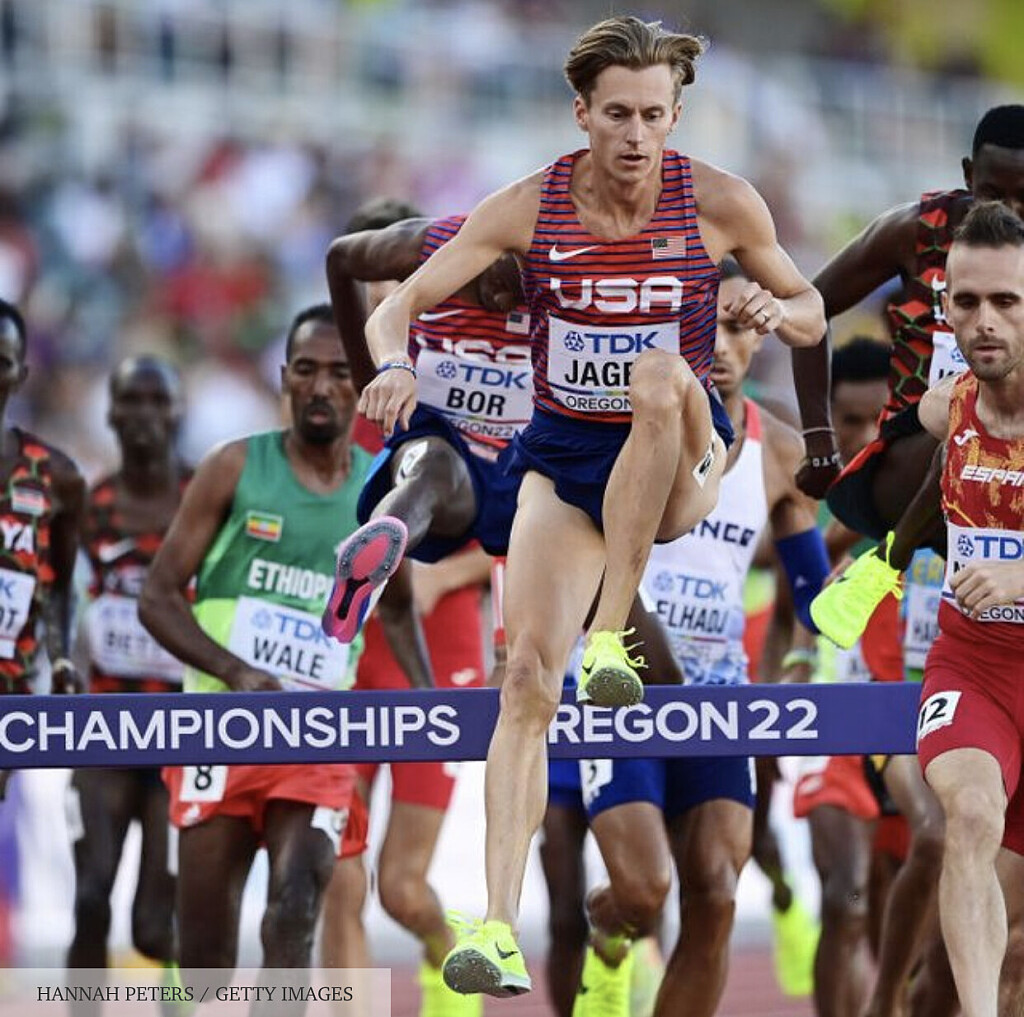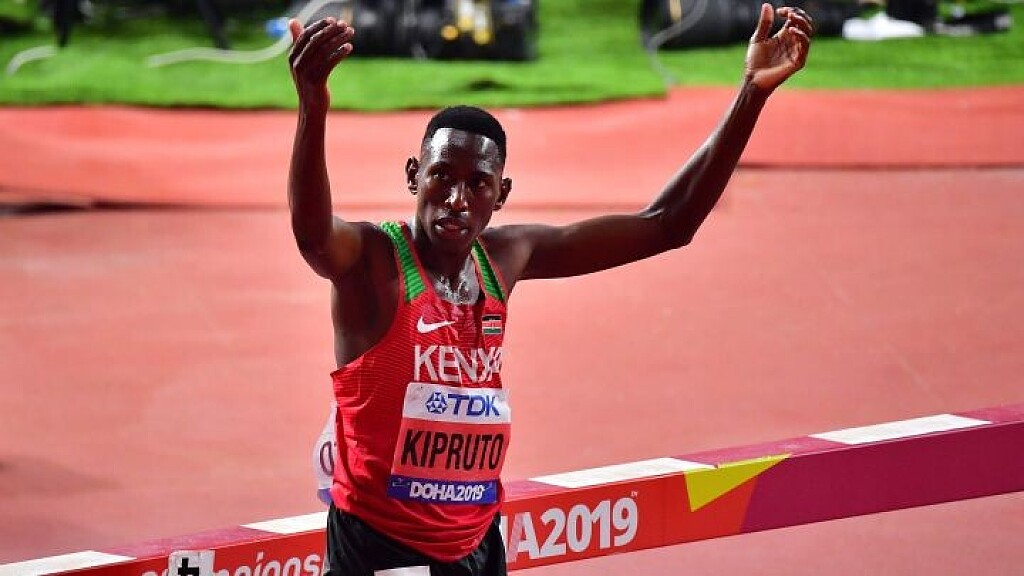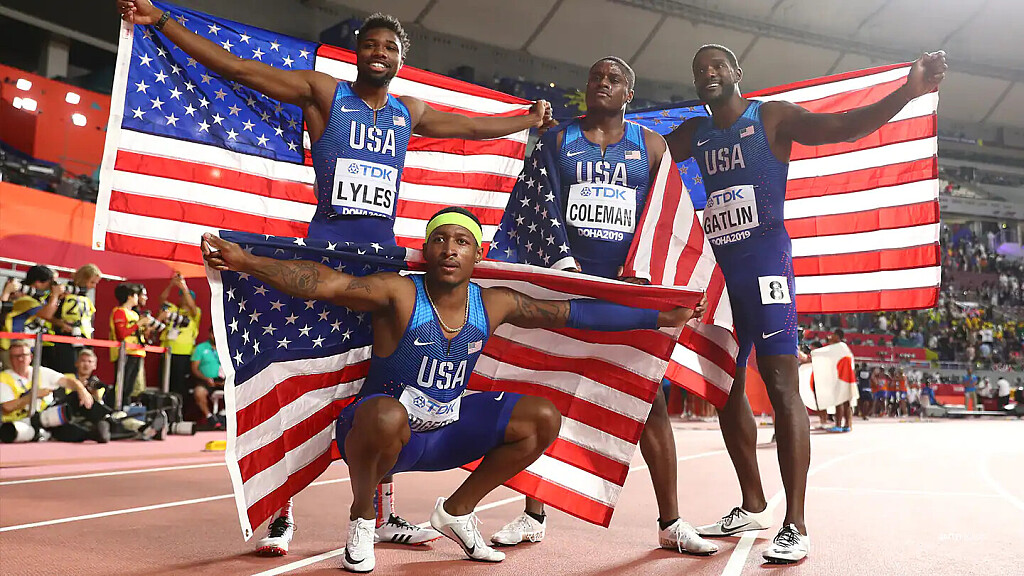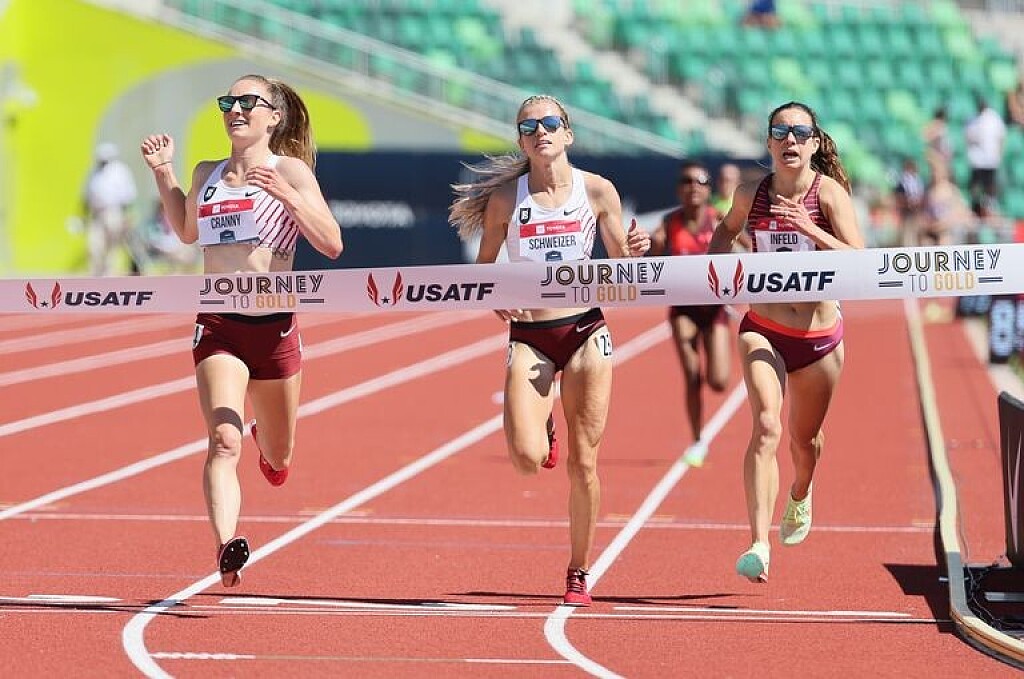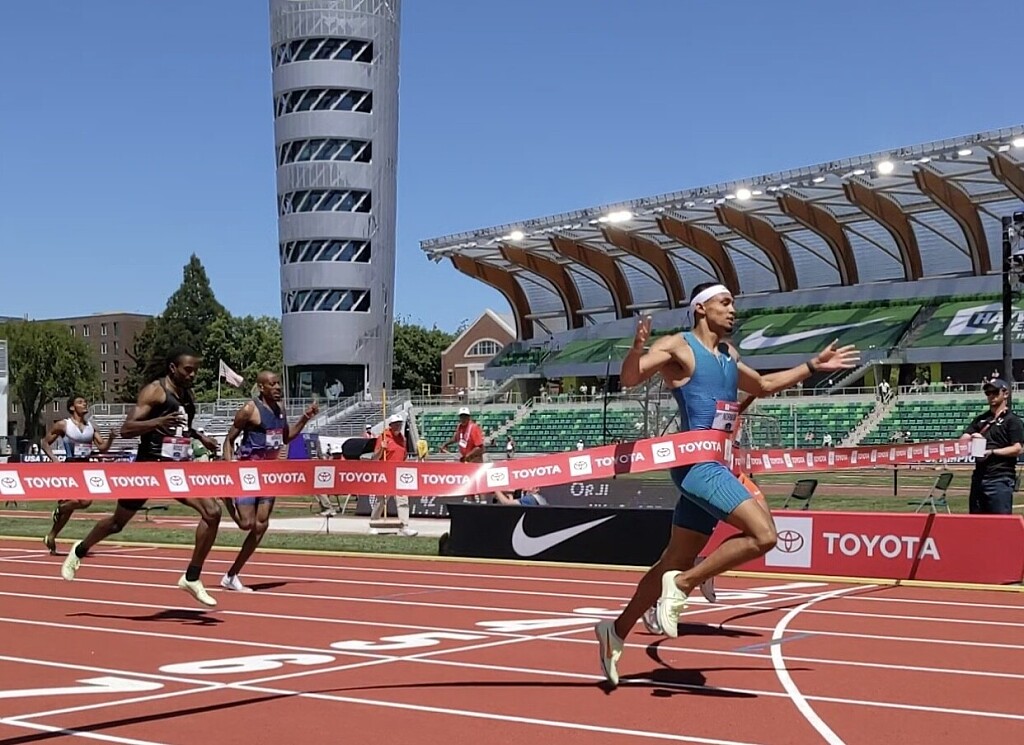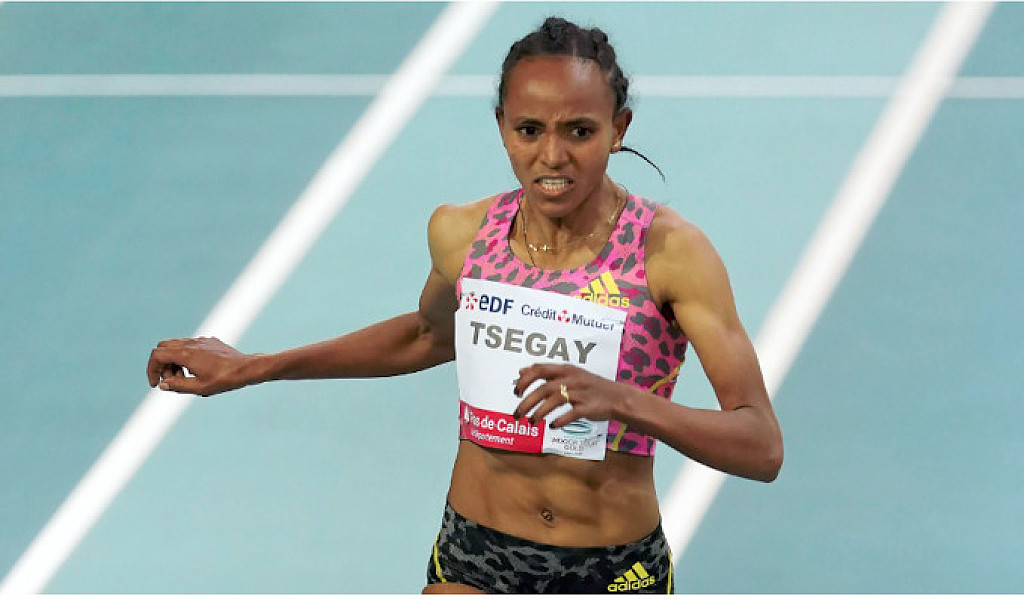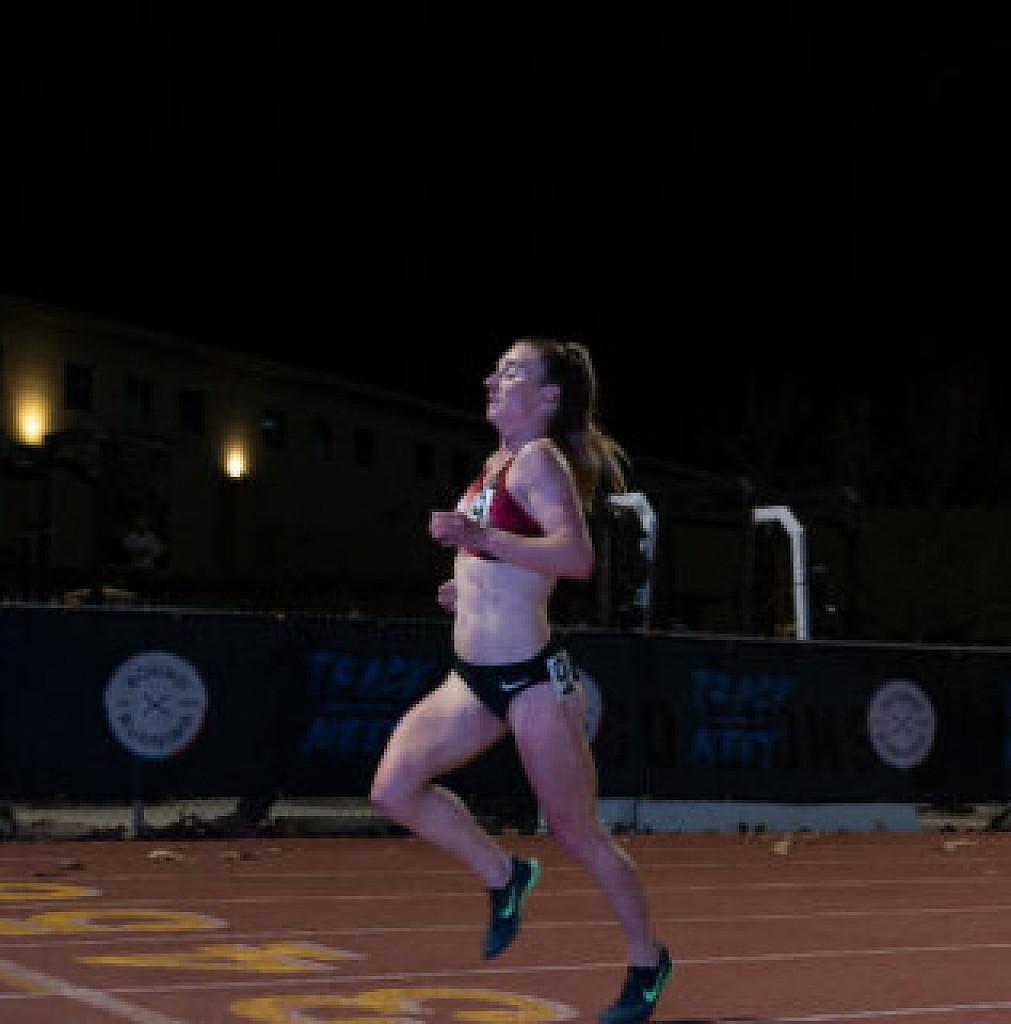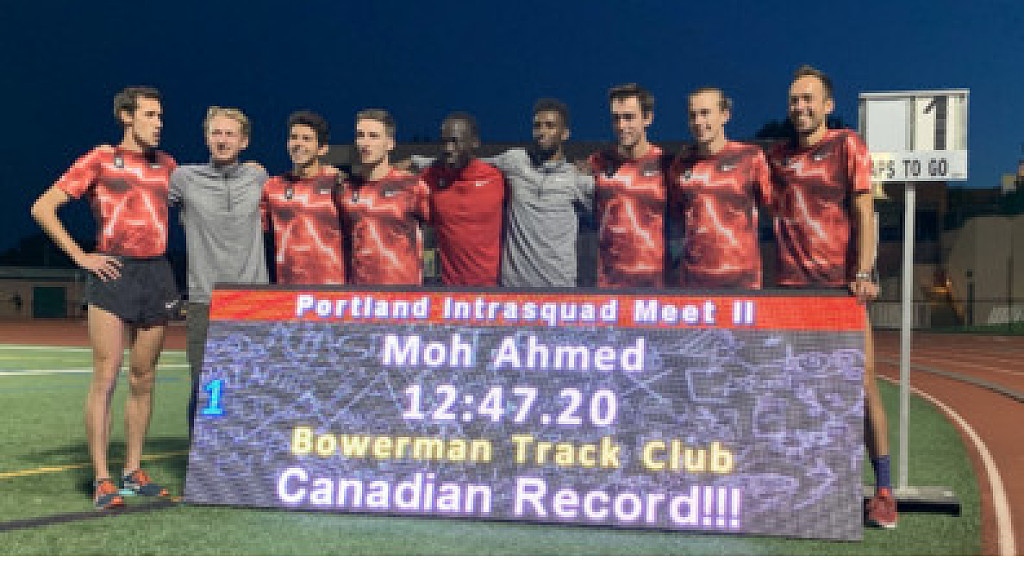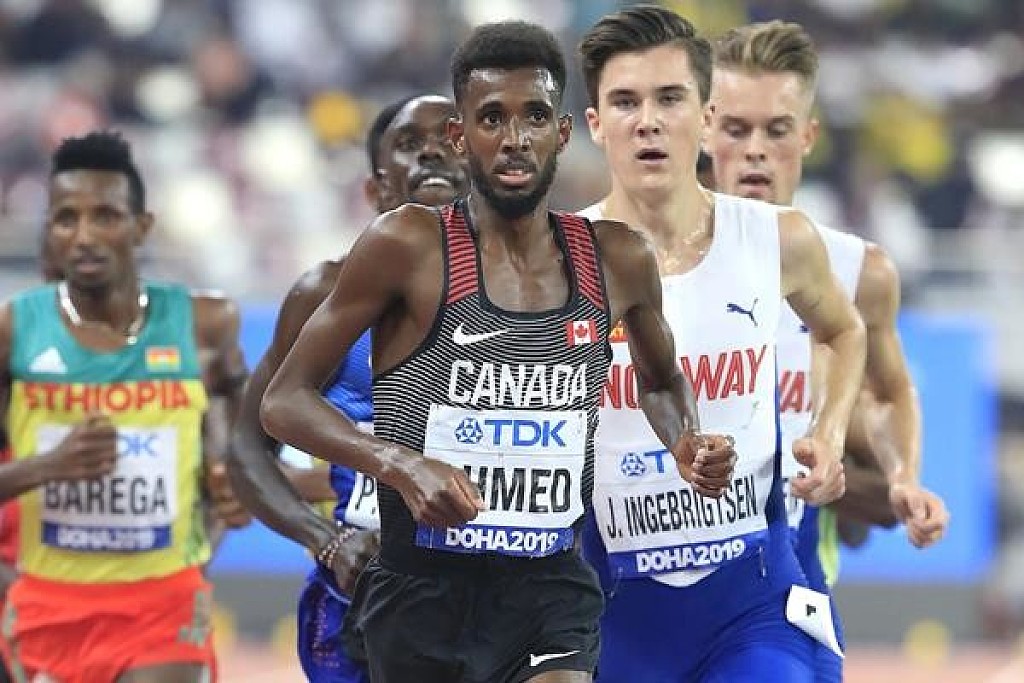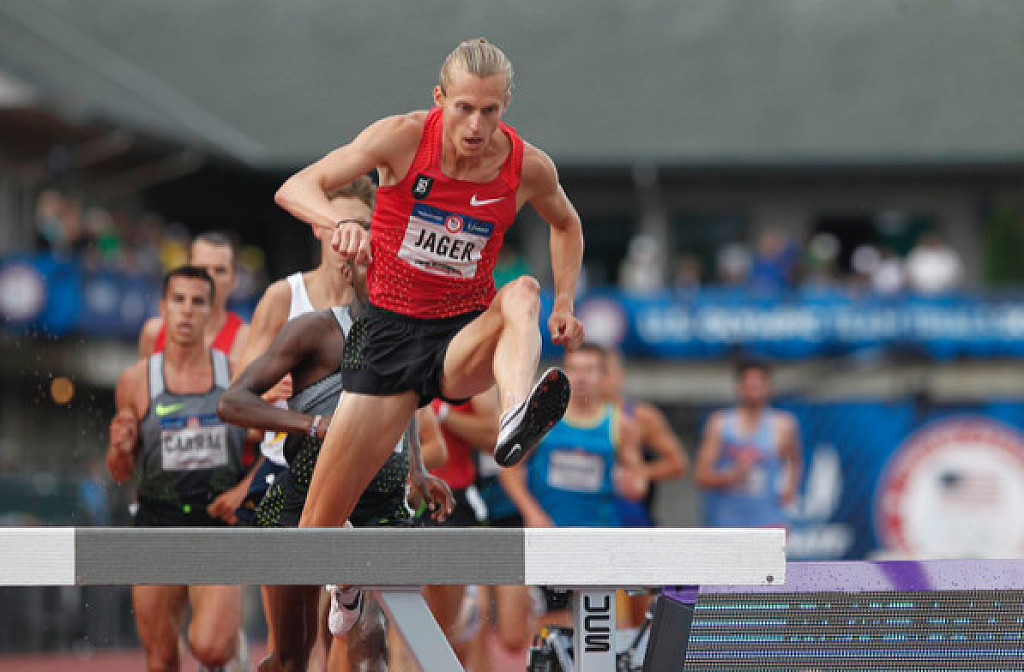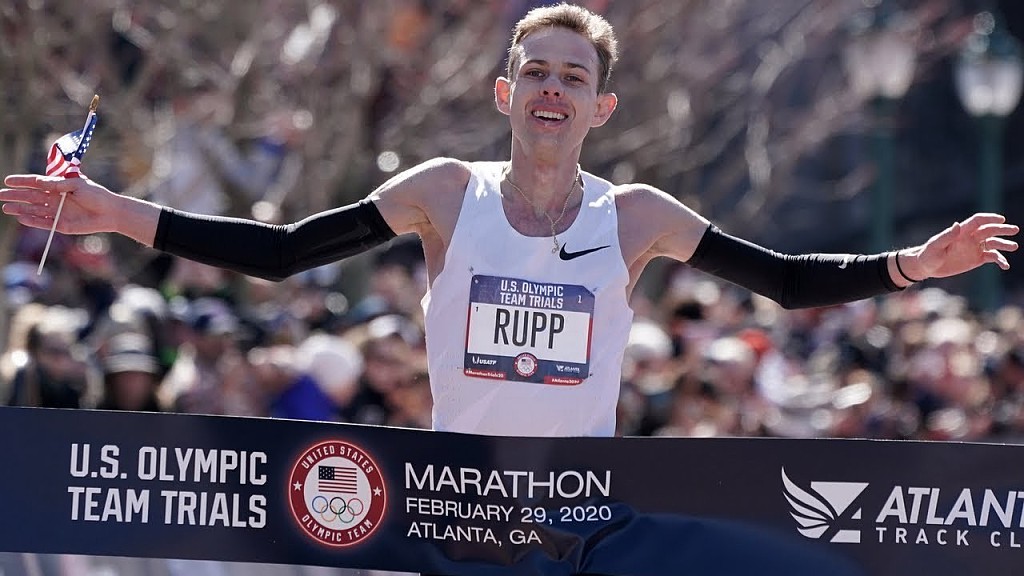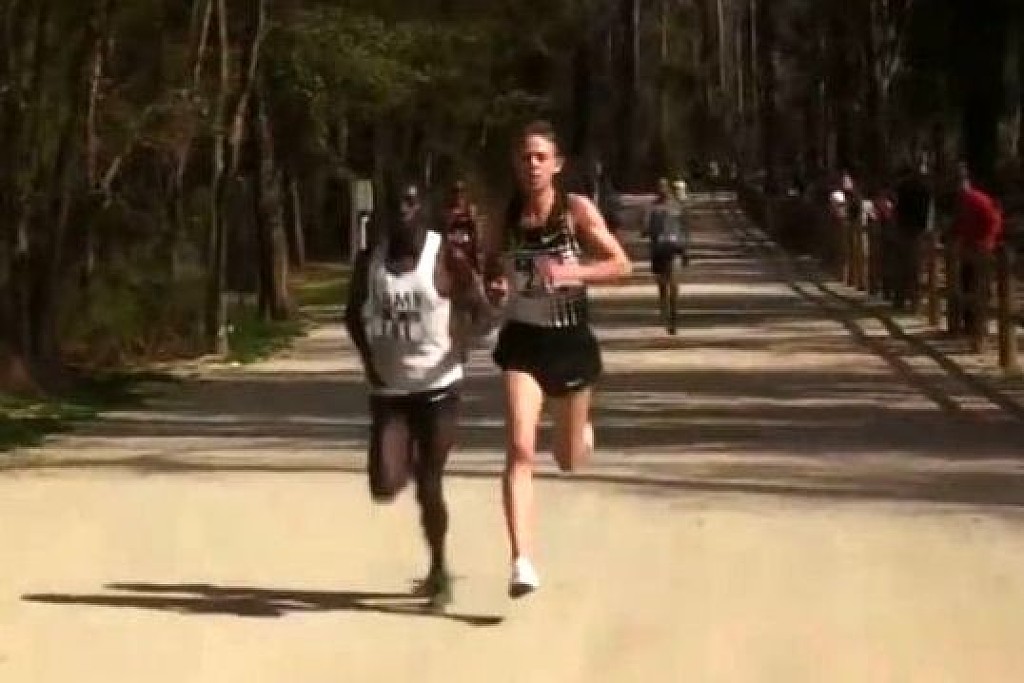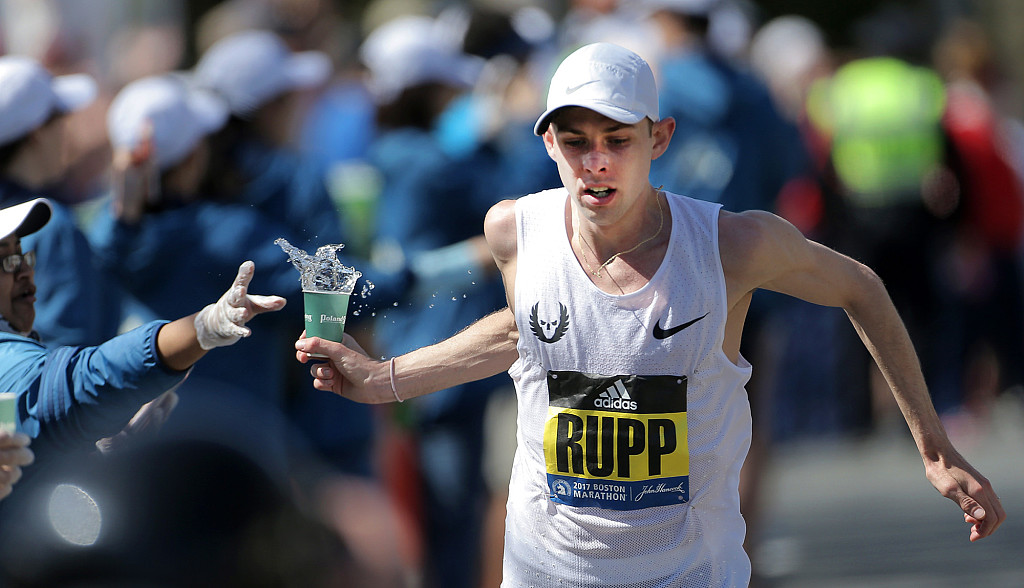Running News Daily
Running News Daily is edited by Bob Anderson. Send your news items to bob@mybestruns.com Advertising opportunities available. Train the Kenyan Way at KATA Kenya and Portugal owned and operated by Bob Anderson. Be sure to catch our movie A Long Run the movie KATA Running Camps and KATA Potato Farms - 31 now open in Kenya! https://kata.ke/
Index to Daily Posts · Sign Up For Updates · Run The World Feed
Articles tagged #Evan Jager
Today's Running News
The TEN Preview: Nico Young Debuts, Alicia Monson Chases AR, and Karissa Schweizer Returns
Saturday night’s races at The TEN in San Juan Capistrano, Calif., will play a significant role in determining who gets to represent the United States in the 10,000 meters at this summer’s Olympics in Paris. The 2024 Olympic auto standards are incredibly tough — only three Americans have ever run under the 27:00.00 men’s standard and only five Americans have hit the 30:40.00 women’s standard — and you can count the number of world-class track 10,000-meter races each year on one hand. That’s why Grant Fisher, Nico Young, Woody Kincaid, Joe Klecker, Abdihamid Nur, Alicia Monson, Karissa Schweizer, Emily Infeld, Weini Kelati, and many more will be heading to SoCal Saturday night.
Since its first edition in 2021, The TEN has become the place for Americans to run a fast 10,000. Fisher set the men’s American record here in 2022 while Monson set the women’s American record here in 2023 and will be looking to repeat the feat in 2024.
To watch the main events, you’ll have to stay up late — the top heat of the women’s 10,000 does not start until 11:58 p.m. ET with the men to follow at 12:35 a.m. ET. Before then, we’ll get appetizer with the men’s 1500 (10:05 p.m. ET), which features Olympic medalists Matthew Centrowitz and Evan Jager kicking off their 2024 seasons.
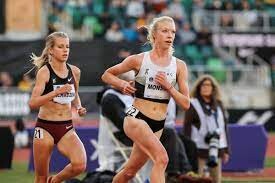
Matthew Centrowitz and Evan Jager have seen it all in running. They both graduated from high school in 2007 and made their first US teams as young guns — Jager as a 20-year-old in 2009, Centro at 21 in 2011. For much of the 2010s, they were among the very best in the world in their events, with Centro bringing home a gold medal from the 2016 Olympics and Jager a silver. Now Centro (34) and Jager (35) are the elder statesmen, trying to fend off a host of younger rivals and make one last Olympic team in Paris.
Both men will run their 2024 outdoor openers in the 1500 on Saturday (Centro did run a 3:59 indoor mile on January 27 while Jager ran the first 4k of a 5k in Boston on February 16 before dropping out). Which means it’s time for one of our favorite games: how fast (or slow) will Centro run?
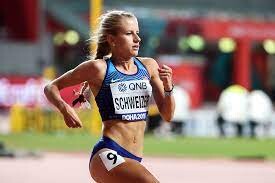
Throughout his career, Centrowitz has established himself as one of America’s greatest ever milers by delivering when it counts. He made every US team from 2011 through 2021 and won three outdoor medals as well as the 2016 World Indoor title. Yet in the latter years of his career, Centro thrown out some stinkers to begin his seasons before working his way into shape. In 2021, he opened with a 3:40 1500 on March 6 followed by a 1:50 800 on April 10 but ended the year running a 3:49 mile and making the Olympic team. Last year, he went to Australia and ran 1:56 for 800 on February 11 and 4:06 for the mile on February 23 but was running 3:36 for 1500 by May and eventually made the US final (though he only finished 10th).
So if Centro runs poorly here, it’s not cause for total panic. Heck, the fact that both he and Jager — who missed most of the 2023 campaign with a foot injury — are healthy enough to be racing is a promising sign. But the American 1500 scene is also more competitive than when Centro last made a team in 2021. Tactically, there is no better US racer than Centro, but he’s up against a group of young studs that includes three medalists from this year’s World Indoors (Yared Nuguse, Cole Hocker, Hobbs Kessler) and a trio of NCAA champions from the University of Washington (Luke Houser, Joe Waskom, Nathan Green). Nuguse is the oldest of that group at 24 — a full decade younger than Centro. Centrowitz is facing an uphill battle to make Olympic team #4 but if he can run 3:36 or 3:37 here and stay healthy for the next three months, he could still have a shot.
As far as the man most likely to win here, Sweden’s Samuel Pihlström ran 3:35 in February and just finished 8th at World Indoors.
Women’s 10,000 (11:58 p.m. ET): Alicia Monson tries to become the first US woman under 30:00 as Karissa Schweizer returns.
Unlike almost every other athlete in this meet, Alicia Monson already has the Olympic standard thanks to the 30:03 American record she ran here last year. So why is she back for another crack?
Monson laid it all out in an interview with LetsRun.com back in December:
Basically, it was just what can we do that would make me feel the most ready for the Olympics? And I feel like that’s running a sub-30:00 10k. I guess the plan would be to break the American record again, but really it’s how fast can I run to feel the most prepared? Because obviously I’m running against people who can run very fast and [I need to] be prepared to run at a pace that feels easy to them and then kick off of it.
Monson was still with the leaders at the bell at last year’s World Championships and her 5th-place finish was the best of her career in a global final. But she finished nearly four seconds out of the medals and the competition will be fierce in Paris. The last three global 10k champions — Sifan Hassan (29:06 pb), Letesenbet Gidey (29:01 pb), and Gudaf Tsegay (29:29 pb) — occupy three of the top four spots on the all-time 10,000m list. The slowest of them, Tsegay, still has a pb 34 seconds faster than Monson’s.
by Jonathan Gault
Login to leave a comment
The Ten
The world's fastest 10,000m races each year have taken place in a sleepy little coastal town in southern California. More national records were broken in 2022 than any other race on the planet as the best in the western hemisphere launched into rarified zones of time and space. The best return to San Juan Capistrano this year to cap off...
more...2023 US Outdoor Track and Field Championships preview from Chris Chavez
Last night was the deadline for athletes to declare their event for the 2023 U.S. Outdoor Track and Field Championships, which will take place in Eugene from July 6-9. At USAs, athletes are allowed to enter multiple events and then make a decision about which event(s) they wish to contest once entries are in, which allows those who’ve achieved multiple qualifiers to be strategic about where they want to concentrate their efforts. The top three in each event who meet the qualifying standards for the World Athletics Championships will go on to represent the United States in Budapest in August.
Reigning World champions have a “bye” to the next year’s Worlds, which means the country they represent gets to send four athletes, not three. Similarly, reigning Diamond League and World Athletics Continental Tour champs earn a bye, but if there is both a World and other champion in the same event, their country still only gets to send one extra athlete.
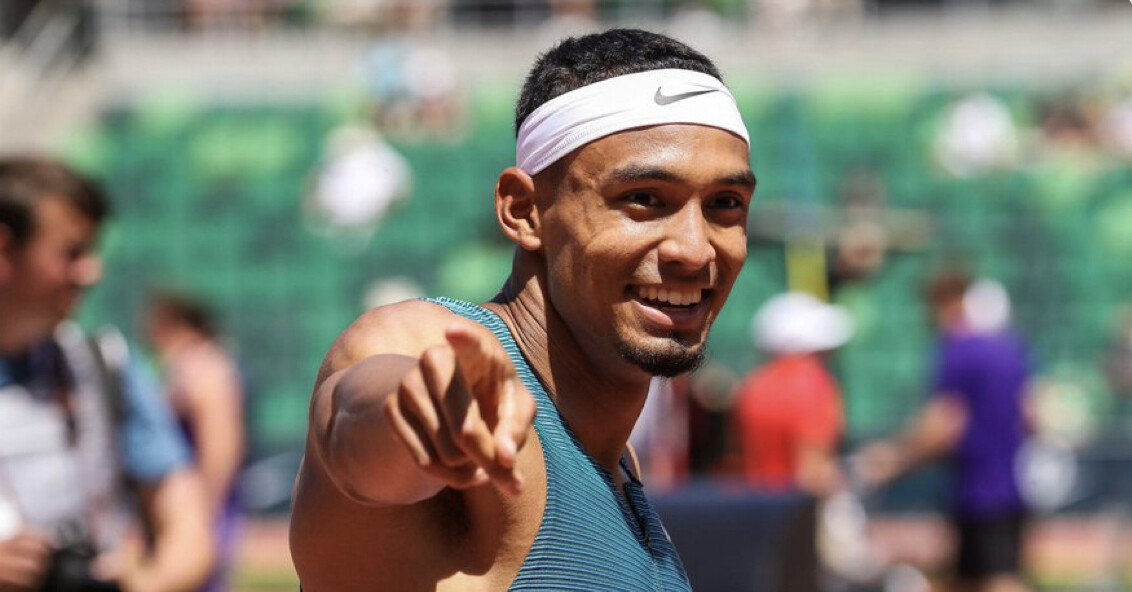
These complex rules lead many American World champions to make interesting choices about what events they wish to contest at USAs and how hard they want to push while still in the middle of the championship season.
MEN’S SPRINTS
– 100m world champion Fred Kerley has the bye to the world championships and will only run the 200m. Last year, he qualified for the World Championships in the 200m with a third place finish behind Noah Lyles and Erriyon Knighton. He injured his quad in the semifinal of the 200m and was unable to run the 4x100m relay for Team USA. Kerley has a season’s best of 19.92 from his win at the Doha Diamond League.
– 200m world champion Noah Lyles has the bye to the world championships and will only run the 100m. He ran a season's best of 9.95 in his outdoor opener in April. The last time he ran the 100m at a U.S. Championship, he finished seventh at the 2021 U.S. Olympic Trials final.
– 400m world champion Michael Norman is declared for the 100m and 200m at the U.S. Championships. He ran a wind-aided 10.02 (+3.0m/s wind) at the Mt. SAC Relays in April. He has not raced since a last place finish in the 200m at the Doha Diamond League in 20.65 on May 5.
WOMEN’S SPRINTS
– Sha’Carri Richardson is running the 100m and 200m. She is looking to qualify for her first World championship team. Her season’s best of 10.76 from her victory at the Doha Diamond League is the second-fastest performance in the world this year. Her season’s best of 22.07 from the Kip Keino Classic at altitude in Nairobi is No. 4 on the world list.
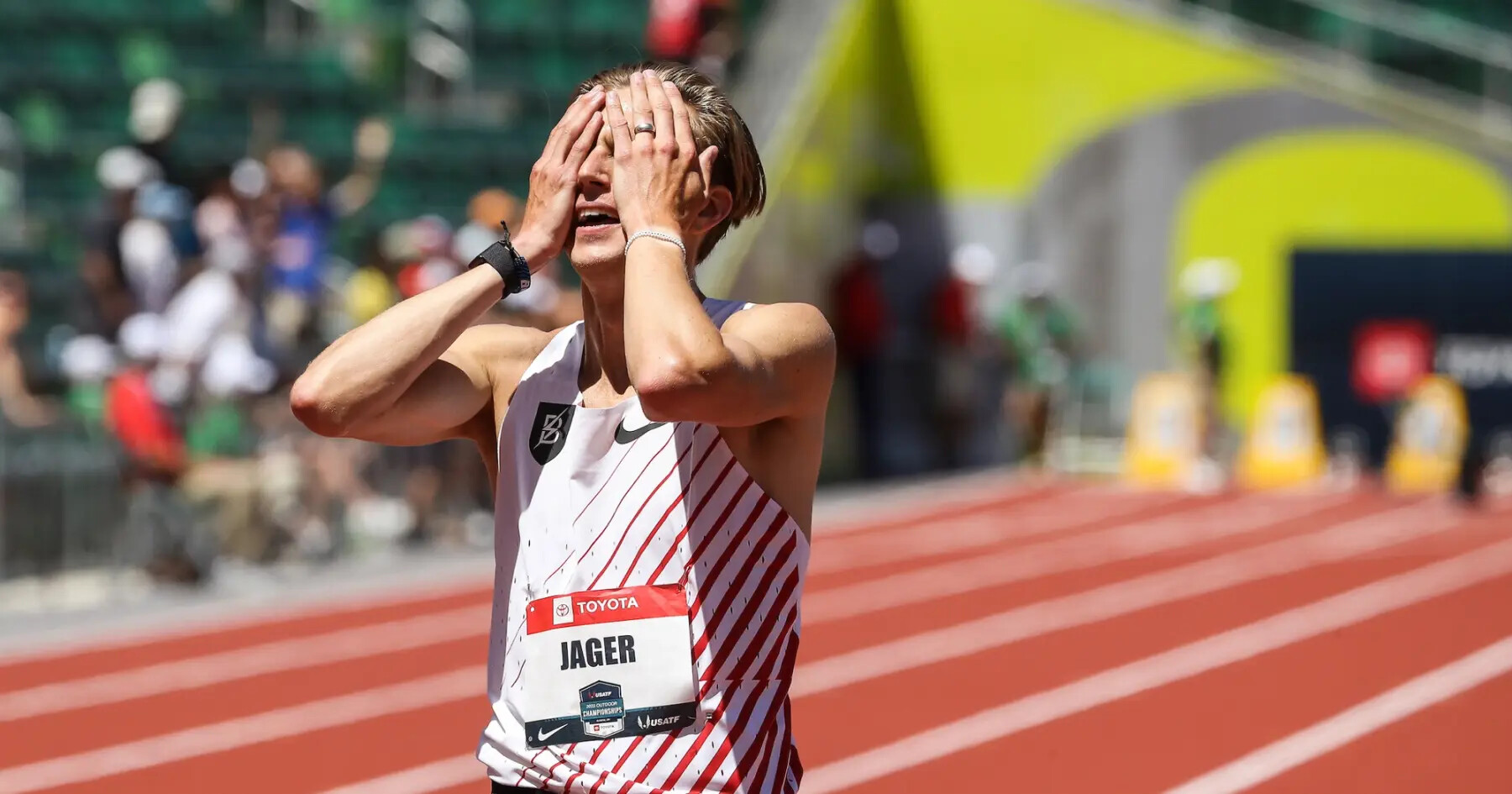
Only Gabby Thomas’ 22.05 from the Paris Diamond League is faster this year by an American woman. Richardson, the 2019 NCAA champion, attempted the double at USAs in both 2019 and 2022, where her highest finish was 8th in the 100m in 2019. She has yet to make a U.S. final in the 200m.
– Reigning U.S. champion Abby Steiner is only running the 200m despite qualifying in both the 100m and the 400m as well. She just ran her season’s best of 22.19 to win the NYC Grand Prix.
– As previously announced, 400m hurdles Olympic champion, World champion and world record holder Sydney McLaughlin-Levrone is running the flat 400m. She plans to make a decision after the U.S. Championships whether she will run the flat 400m (if she qualifies) or defend her 400m hurdles title in Budapest.
– NCAA record holder Britton Wilson, who ran 49.14 to become No. 4 on the U.S. all-time list, will only run the 400m and not the 400m hurdles. She hurdled at last year’s World championships and participated in the 4x400m relay.
MEN’S DISTANCE
– This year’s men’s steeplechase team should have a new look. 2016 Olympic silver medalist Evan Jager is not entered in the steeplechase. He has raced just once this outdoor season. Hillary Bor, the reigning U.S. champion who also owns the fastest steeplechase time by an American this year in 8:11.28, broke his foot earlier this spring and will miss the U.S. Championships. This is the first U.S. team he has missed since 2015. The top returner is Benard Keter, who made the Olympic team in 2021 and the World team in 2022, but he is only the fifth-fastest entrant by seed time.
– For the first time, 2021 U.S. 5000m champPaul Chelimo is entered in both the 5000m and the 10,000m. Chelimo, the 3x global medalist at 5000m, has typically only focused on the shorter event, but after his 27:12.73 performance at the Night of the 10,000m PBs in the U.K. earlier this season, he has decided to contest both events. He’s seeded No. 4 by qualifying time in both events behind Grant Fisher, Woody Kincaid, and Joe Klecker (all also double-entered).
WOMEN’S DISTANCE
– 800m Olympic and world champion Athing Mu entered the 1500m, as previously announced with coach Bobby Kersee. She has the bye to the world championships in the 800m. Her personal best of 4:16.06 is well outside the automatic standard of 4:05.00 and was achieved outside the qualifying window for the championships, but USATF rules allow for significant discretion in accepting entries from the Sports Committee chair.
– Josette Norris and On Athletics Club coach Dathan Ritzenhein have decided to focus solely on the 5000m. Norris ran 14:43.36 at Sound Running’s Track Fest in early May. That’s the second-fastest time by an American woman on the year behind her teammate and training partner Alicia Monson’s 14:34.88 at the Paris Diamond League. Monson is entered in both the 5000m and 10,000m after choosing to only contest the 10,000m last year.
– NC State’s NCAA record holder Katelyn Tuohy will only run the 5000m. Tuohy qualified for NCAAs in both the 1500m and the 5000m but ended up only running the 1500m after an uncharacteristically disappointing performance in the final.
– The Bowerman Track Club’s Elise Cranny has declared for the 1500m, 5000m and the 10,000m. The first round of the women’s 1500m is 19 minutes before the final of the 10,000m on Day 1 of the competition, so Cranny will likely scratch one or more events at a later point.
by Chris Chavez (Citius magazine)
Login to leave a comment
USATF Outdoor Championships
With an eye toward continuing the historic athletic success of 2022, USATF is pleased to announce competitive opportunities for its athletes to secure qualifying marks and prize money, including a new Grand Prix series, as they prepare for the 2023 World Athletics Championships in Budapest, Hungary.As announced a few months ago, the 2023 Indoor Championships in Nanjing, China have been...
more...This 33-year-old steeplechase specialist had a bumpy four years until placing sixth at the World Athletics Championships on July 18
If you told Evan Jager in April that he would place sixth in the World Athletics Championships men’s 3,000-meter steeplechase in just a few months, he would have been ecstatic.
After all, the 2016 Olympic silver medalisthad only ran 8:34.89 at the Mt. SAC Relays on April 14, which is almost 13 seconds off the world’s standard time of 8:22.00. Though Jager had better steeplechase showings at the USATF Distance Classic on May 19 and the Portland Track Festival on June 10, it looked like the 33-year-old distance runner was still a far from being his former self.
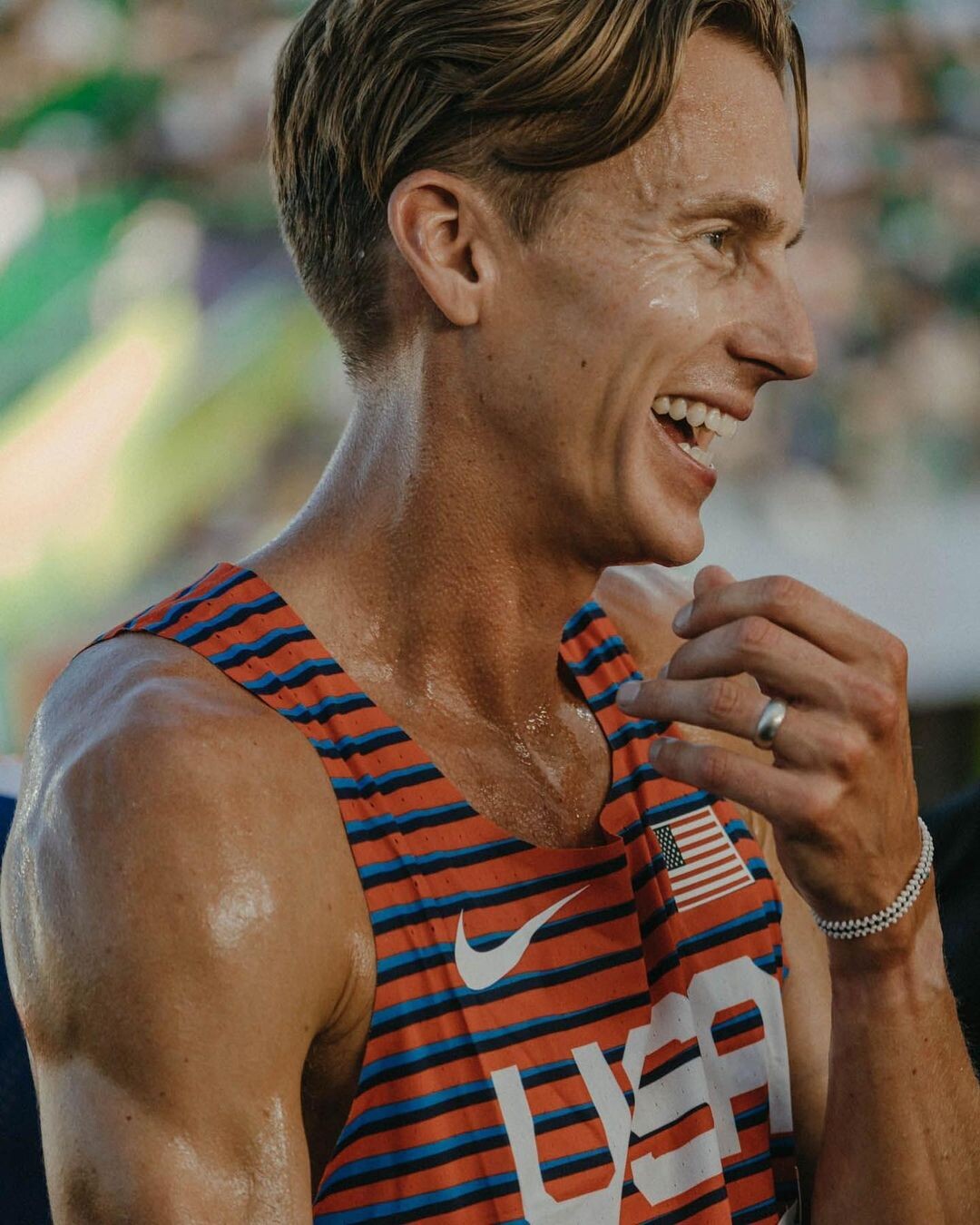
Things finally clicked at the USATF Outdoor Championships on June 25, when he ran 8:17.25 in the final to place second, earning him the world championships standard and a spot on Team USA for the World Athletics Championships at Hayward Field in Eugene, Oregon.
“Once you reach a certain point, you’ve got to set the bar higher,” Jager told Runner’s World.“I probably didn’t start thinking about realistically making the World Championship final until the prelim at USAs, I felt really good coming off of that.”
With momentum on his side, Jager’s expectations grew. The Bowerman Track Club athlete looked strong in his world championships preliminary heat, qualifying automatically for the final with his second-place finish. But in a tactical and physical final, Jager couldn’t keep up with defending Olympic champion Soufiane El Bakkali, Olympic silver medalist Lamecha Girma, and defending world champion Conseslus Kipruto over the final lap.
“After the prelim, I felt like my fitness was up there with just about anyone besides El Bakkali and Girma if it was a hard race from the get-go,” Jager said. “Team USA was having such an unbelievable and magical meet that I was letting myself believe that I could let the home crowd carry me to a magical performance. I think I probably would have fared better in a faster race.”
Regardless, the achievement is impressive for a runner who has been absent from the track & field circuit for the last four years. A lot has changed, especially with his training group. In 2018, Jager and Canadian 5,000- and 10,000-meter runner Mo Ahmed were the top dogs on the Bowerman Track Club, challenging the best in the world for medals. But Jager got hurt that year, and spent most of 2019 trying to get fit again while dealing with other injuries. When Jager returned to training, the team dynamic changed completely. Olympic gold medalist Matthew Centrowitz joined the group, who along with Woody Kincaid and Lopez Lomong all ran around 13 minutes in the 5,000 meters that summer. Then, NCAA champions Sean McGorty and Grant Fisher trickled in after using up their eligibility.
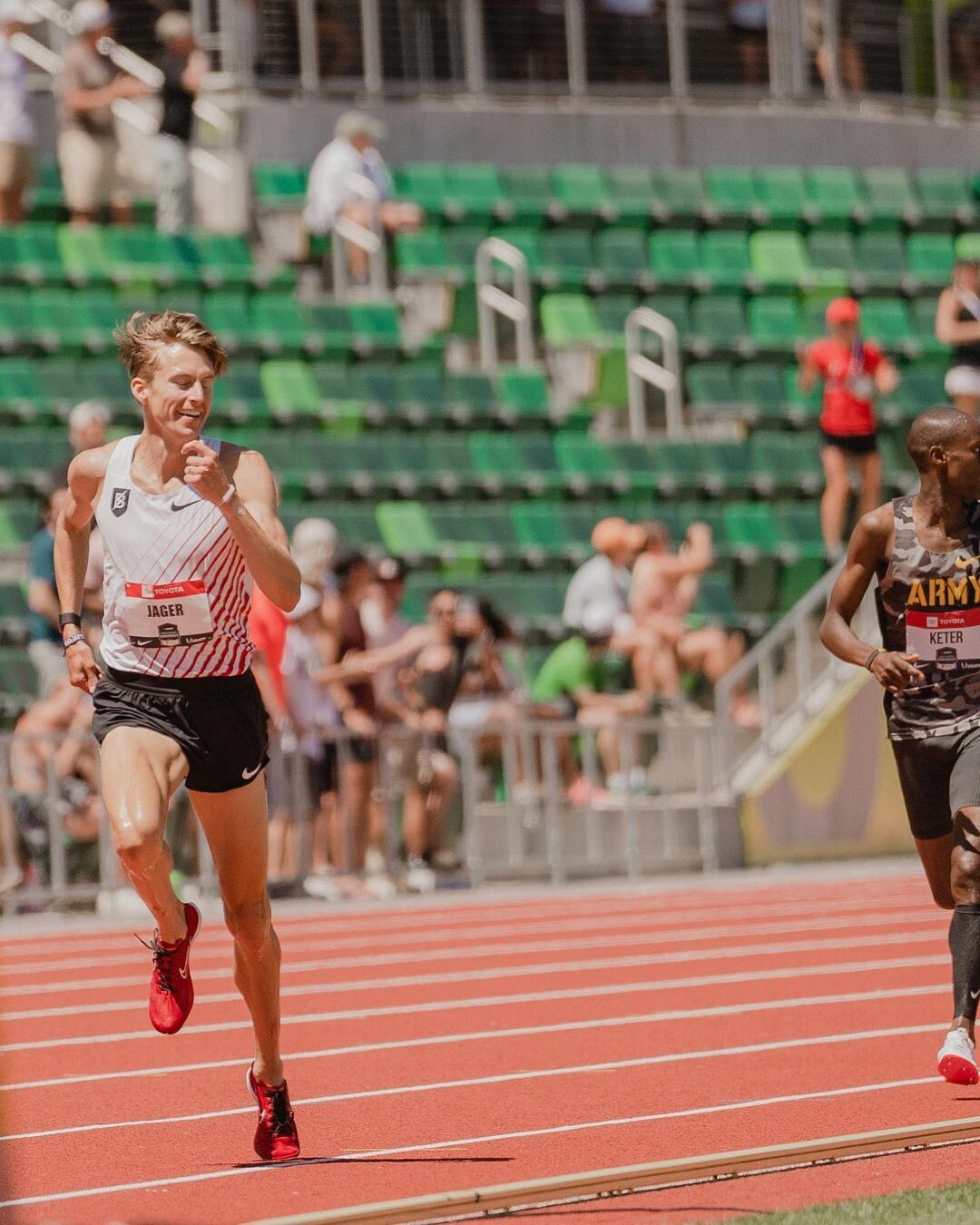
“I went from being on top … to being literally the worst guy on the team,” said Jager. “Every day was a grind.” Jager tried to keep up with the new members while also battling injuries, but had a hard time getting through even half of team workouts. “They were just on another level. I never felt like I was within myself in training for three and a half years up until this spring.”
So what changed in those three and a half years? Jager credits the team physical therapist, Colleen Little, who started working with Bowerman in January 2021. His problem wasn’t simply one big injury, like the stress fracture in his foot that ended his 2018 season. It was a snowball effect of one injury leading to overcompensation and imbalances in other parts of his body. So Jager and Little saw each other once or twice a week, every week, to manage the different aches and pains.
Next year will bring even more changes for Jager. His coach, Jerry Schumacher, is moving to Eugene to take the helm of the University of Oregon track & field program. The Bowerman Track Club’s athletes will relocate from their current base in Portland.
“I think it’s an incredible move for the group,” Jager said. “Change is always good. I’ve been in Portland for 14 years now, so it’s probably a good thing for me.”
Besides that, Jager said being stubborn kept him in the game. “I could have done a lot better being positive and working on mental health [the last few years],” he said. “I just believed that if I got healthy, I would get back here. If I can get to the final off of feeling healthy for four months, then I’m excited for next year.”
by Runner’s World
Login to leave a comment
World Athletics Championships Budapest23
Budapest is a true capital of sports, which is one of the reasons why the World Athletics Championships Budapest 2023 is in the right place here. Here are some of the most important world athletics events and venues where we have witnessed moments of sporting history. Throughout the 125-year history of Hungarian athletics, the country and Budapest have hosted numerous...
more...Conseslus Kipruto leads Kenyan quartet in quest for steeplechase gold
Kenya's dominance in the 3,000 metres steeplechase faces a stern test when the World Championships start on Friday in Oregon, USA.
Defending champion Conseslus Kipruto, Olympic Games bronze medallist Benjamin Kigen, 2017 World Under-18 2000m silver medallist Leonard Bett and Commonwealth Games silver medallist Abraham Kibiwott are carrying the nation's hopes of keeping the title the country has won in every World Championship since 1991 except in 2001 and 2005.
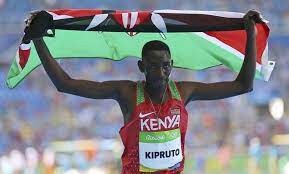
Kenyan-born Qatari Saif Shaheen, who holds the world record of 7:53.63 in the race, bagged gold in 2001 Saint-Denis and 2005 Helsinki World Championships.
Bett and Kibiwot are in the first heat where they will be seeking to make the final scheduled for Monday.
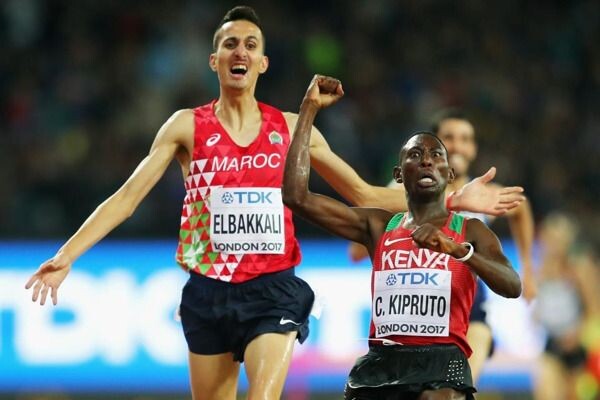
The top three athletes in each semifinal plus the six fastest losers will qualify for the final.
Bett and Kibiwott face an uphill task as they face Olympics champion Soufiane El Bakkali from Morocco in the first heat. Bakkali has a personal best time of 7:58.15 which is also the world-leading time.
Bett told Nation Sport that the plan is to safely navigate through the heats before they can hatch a plan on how to claim the medals in the final.
“We started our preparations early by joining the camp before the trials because the initial plan was to make sure we tackle the stiff competition especially from the two athletes (Girma and Bakkali) who have been on top form this season," said Bett.
“I won’t tell you who will win the gold medal but we have to work as a team to make sure we redeem our name as a country,” added Bett.
The second semifinal will see the Kipruto square it out with Ethiopia’s Lamecha Girma, whom he narrowly beat during the 2019 World Championships in Doha, Qatar.
Djibouti’s Mohamed Ismail, Canada’s Ryan Smeeton, USA’s Hillary Bor are also in the field.
Kigen, Ethiopia’s Hailemariyam Amare, Tunisia’s Mohamed Amin, USA’s Evan Jager, Norway’s Jacob Boutera are in Heat Three.
Kipruto, who has been battling injuries after his triumph in Doha in 2019, is seeking to atone for lost time after missing the Olympic Games last year.
Kipruto finished fifth during the Athletics Kenya Track and Field Championships which acted as the trials for the Africa Senior Championships after clocking 8:32.24, before emerging in the same position during the Kip Keino Classic in Nairobi last month.
“Kenyans should not be worried because this is a championship and you can’t compare it with the Diamond League races. It will be a tight contest in the final and I will be doing my best to make sure we bring back our glory as Kenyans,” Kipruto had said in an earlier interview before leaving for Oregon.
In the 2019 worlds, Kipruto won gold in 8:01.35 ahead of Girma who clocked 8:01.36 while Bakkali settled for bronze in 8:03.76.
by Bernard Rotich
Login to leave a comment
World Athletics Championships Budapest23
Budapest is a true capital of sports, which is one of the reasons why the World Athletics Championships Budapest 2023 is in the right place here. Here are some of the most important world athletics events and venues where we have witnessed moments of sporting history. Throughout the 125-year history of Hungarian athletics, the country and Budapest have hosted numerous...
more...USA names 151-strong team for World Championships in Oregon
A team of 151 athletes will represent the USA on home soil at the World Athletics Championships Oregon22 on July 15-24.
Multiple global champions and world record-holders feature in the squad as Eugene’s Hayward Field gets ready to welcome the world for the first-ever outdoor World Athletics Championships to be hosted in the USA.
World record-holder and Olympic champion Sydney McLaughlin will take on the former world record-holder and reigning world champion Dalilah Muhammad as they look to further cement the US women’s global dominance in the 400m hurdles final on July 22.
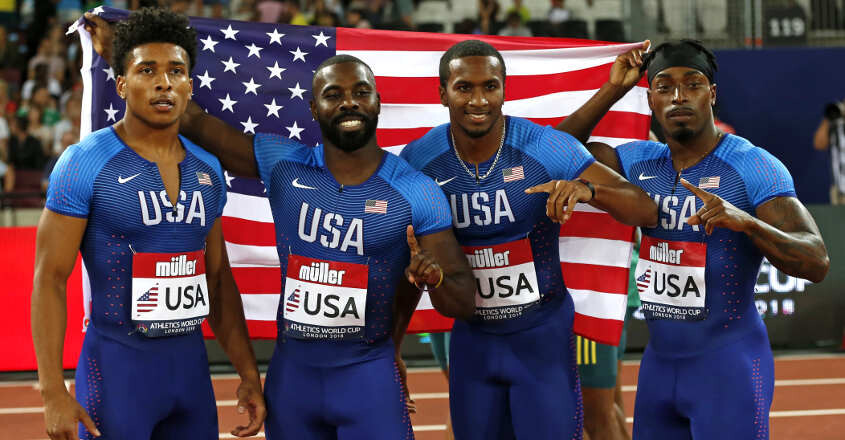
In the men’s shot put on July 17, world record-holder and Olympic champion Ryan Crouser will go after the one title that has so far eluded him – that of world champion – and will take on two-time world champion Joe Kovacs.
Such is the strength of the women’s 800m squad of Athing Mu, Ajee Wilson and Raevyn Rogers, as well as the men’s 200m team of Noah Lyles, Erriyon Knighton, Fred Kerley and Kenny Bednarek, that athletes will be aiming for USA medal sweeps.
Returning to defend the titles they won in Doha in 2019 are Nia Ali (women's 100m hurdles), Donavan Brazier (men's 800m), Christian Coleman (men's 100m), Grant Holloway (men's 110m hurdles), Kovacs (men's shot put), Lyles (men's 200m), Muhammad (women's 400m hurdles), DeAnna Price (women's hammer) and Christian Taylor (men's triple jump).
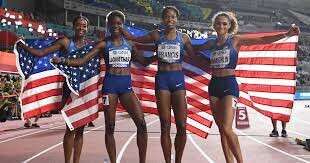
Making her 10th World Championships appearance will be Allyson Felix, who has 18 world medals, including 13 golds, to her name and will be in the mixed 4x400m pool.
“I couldn’t be prouder to lead this amazing team for this once-in-a-lifetime event,” said USATF CEO Max Siegel. “We have been given the unique opportunity to impact the track and field landscape in the US, and we’ve put our best team forward.”
USA team for Oregon
Women
100m: Aleia Hobbs, Melissa Jefferson, Twanisha Terry
200m: Tamara Clark, Jenna Prandini, Abby Steiner
400m: Talitha Diggs, Kendall Ellis, Lynna Irby
800m: Athing Mu, Raevyn Rogers, Ajee Wilson
1500m: Sinclaire Johnson, Cory McGee, Elle St. Pierre
5000m: Elise Cranny, Emily Infeld, Karissa Schweizer
10,000m: Alicia Monson, Natosha Rogers, Karissa Schweizer
Marathon: Emma Bates, Keira D’Amato, Sara Hall
3000m steeplechase: Emma Coburn, Courtney Frerichs, Courtney Wayment
100m hurdles: Nia Ali, Alia Armstrong, Keni Harrison, Alaysha Johnson
400m hurdles: Shamier Little, Sydney McLaughlin, Dalilah Muhammad, Britton Wilson
Heptathlon: Michelle Atherley, Anna Hall, Kendell Williams, Ashtin Zamzow-Mahler
High jump: Vashti Cunningham, Rachel Glenn, Rachel McCoy
Pole vault: Gabriela Leon, Sandi Morris, Katie Nageotte
Long jump: Quanesha Burks, Tiffany Flynn, Jasmine Moore
Triple jump: Tori Franklin, Jasmine Moore, Keturah Orji
Shot put: Adelaide Aquilla, Chase Ealey, Maggie Ewen, Jessica Woodard
Discus: Valarie Allman, Rachel Dincoff, Veronica Fraley, Laulauga Tausaga-Collins
Hammer: Brooke Andersen, Annette Echikunwoke, Janee Kassanavoid, DeAnna Price
Javelin: Ariana Ince, Maggie Malone, Kara Winger
20km race walk: Robyn Stevens, Miranda Melville
35km race walk: Stephanie Casey, Miranda Melville, Maria Michta-Coffey
4x100m: Celera Barnes, Tamari Davis, Gabby Thomas (plus athletes named in individual sprints)
4x400m: Wadeline Jonathas, Jaide Stepter, Kaylin Whitney (plus athletes named in individual sprints)
Men
100m: Marvin Bracy, Trayvon Bromell, Christian Coleman, Fred Kerley
200m: Kenny Bednarek, Fred Kerley, Erriyon Knighton, Noah Lyles
400m: Champion Allison, Michael Cherry, Michael Norman, Randolph Ross
800m: Donavan Brazier, Bryce Hoppel, Jonah Koech, Brandon Miller
1500m: Johnny Gregorek, Cooper Teare, Josh Thompson
5000m: Grant Fisher, Woody Kincaid, Abdihamid Nur
10,000m: Grant Fisher, Joe Klecker, Sean McGorty
Marathon: Elkanah Kibet, Colin Mickow, Galen Rupp
3000m steeplechase: Hillary Bor, Evan Jager, Benard Keter
110m hurdles: Devon Allen, Trey Cunningham, Grant Holloway, Daniel Roberts
400m hurdles: Trevor Bassitt, Rai Benjamin, Khallifah Rosser
Decathlon: Steven Bastien, Kyle Garland, Zach ZiemekHigh jump: Darius Carbin, JuVaughn Harrison, Shelby McEwen
Pole vault: Andrew Irwin, Chris Nilsen, Luke WinderLong jump: Marquis Dendy, Steffin McCarter, Will Williams
Triple jump: Chris Benard, Will Claye, Donald Scott, Christian Taylor
Shot put: Josh Awotunde, Ryan Crouser, Joe Kovacs, Tripp Piperi Discus: Andrew Evans, Sam Mattis, Brian Williams
Hammer: Daniel Haugh, Rudy Winkler, Alex Young
Javelin: Ethan Dabbs, Tim Glover, Curtis Thompson
20km race walk: Nick Christie, Dan Nehnevaj
35km race walk: Nick Christie
4x100m: Kyree King, Josephus Lyles, Elijah Hall-Thompson (plus athletes named in individual sprints)
4x400m: Bryce Deadmon, Vernon Norwood, Elija Godwin (plus athletes named in individual sprints)
Mixed
4x400m: Allyson Felix, Kennedy Simon, Ismail Turner, Noah Williams (plus athletes named in individual sprints).
by World Athletics
Login to leave a comment
World Athletics Championships Budapest23
Budapest is a true capital of sports, which is one of the reasons why the World Athletics Championships Budapest 2023 is in the right place here. Here are some of the most important world athletics events and venues where we have witnessed moments of sporting history. Throughout the 125-year history of Hungarian athletics, the country and Budapest have hosted numerous...
more...Highlights from the 2022 USATF Outdoor Championships June 26
The USATF Outdoor Championships at Hayward Field in Eugene, Oregon have finished and the athletes set to represent Team USA at the World Athletics Championships have been decided. Over four days, there was a world record set and plenty of great battles for the limited spots on the world team.
The World Athletics Championships will be back at Hayward Field from July 15 to July 24. It will be the first time the United States is hosting the meet.
Here are the highlights from the 2022 USATF Outdoor Championships.
Cranny wins a close one in the 5,000 meters
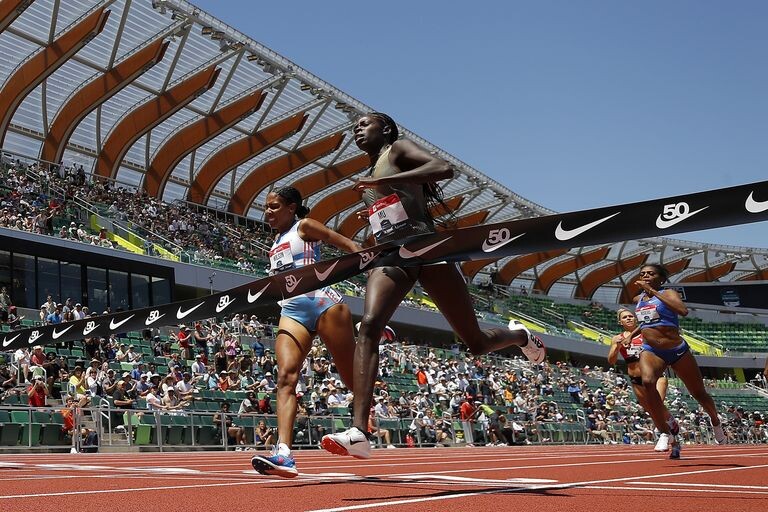
After a schedule change to avoid hot conditions, the women’s 5,000 meters opened the final day of the USATF Outdoor Championships. Unfortunately, the women couldn’t completely escape the heat—the temperature on the track read 82 degrees.
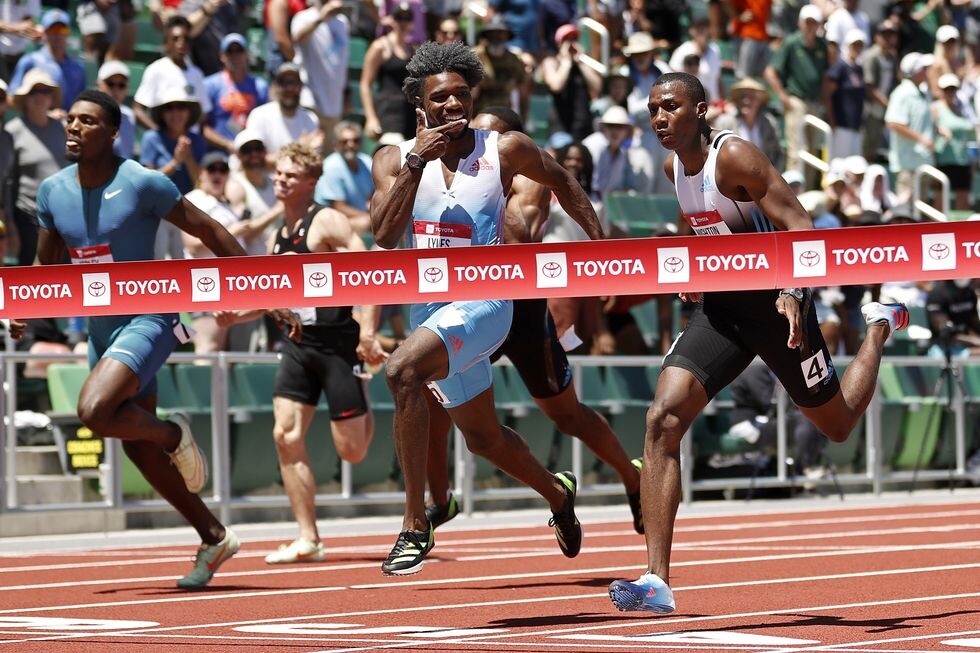
As a result, the women dawdled, running most of the race in a tight pack. With 1600 meters remaining, Karissa Schweizer—who placed fourth in the 1500 meters on Saturday—picked up the pace. With two laps, four women separated themselves: Schweizer, indoor American record holder Elise Cranny, world championships bronze medalist Emily Infeld, and Weini Kelati. Kelati fell off the group by the bell, and the top three were set. Now, it was a battle for place.
Schweizer, Cranny, and Infeld battled down the final straightaway, trading leads multiple times. When the dust settled, Cranny earned the victory, with Schweizer and Infeld less than a half second behind in that order.
Each woman completed their own unique narrative coming into the race. Cranny scratched from the USATF 10,000-meter championships on May 27, saying in an Instagram post she hadn’t been feeling like herself in training. Schweizer, who did qualify for the 10,000 meters, also placed fourth in the 1500. With this 5,000-meter performance, she completed one of the best championship runs in U.S. history. Finally, after just missing out on qualifying for the 10,000-meter world team, Infeld earned a spot on her first global championship team since 2017.
Fisher takes down 5,000 meet record, Kincaid unleashes furious kick for second
Conversely to the women’s race, the men’s 5,000 meters went out hard. Hillary Bor, who qualified for the steeplechase team on Saturday, kept checking his watch—apparently pacing the race. Multiple time global medalist Paul Chelimo and Bowerman Track Club teammates Grant Fisher and Woody Kincaid held position right behind Bor.
Bor dropped out at 1800 meters after splitting 4:12 for the mile. Evan Jager, who also qualified for the steeplechase world team, led the men for another mile. Fisher, Emmanuel Bor, and NCAA indoor 5,000-meter champion Abdihamid Nur of Northern Arizona quickly separated from the group after Jager dropped out.
Over the final 1200, Fisher put on a clinic, squeezing the pace over each lap until he was all alone. He won the race in 13:03.86, a meet record.
The most exciting portion of the race occurred offscreen. After trailing the top three by five seconds with 400 to go, Kincaid unleashed a monstrous 54.24 final lap to take silver in a time of 13:06.70. Nur held on to earn his first world championship berth, running 13:08.63. Emmanuel Bor faded to fifth.
Coburn claims eighth straight U.S. steeplechase title
After a moderate first 1,000 meters, four women were clear of the pack in the women’s steeplechase: recent NCAA champion Courtney Wayment, Gabi Jennings, six-time U.S. champion Emma Coburn, and Olympic silver medalist and American record holder Courtney Frerichs.
That group whittled down to Wayment, Coburn, and Frerichs by 800 to go. Half a lap later, Coburn quickened her pace. Wayment and Frerichs, perhaps surprised by the move, didn’t go with Coburn, who put more and more distance on them over the final lap. Coburn notched her eighth consecutive U.S. title in a season best of 9:10.63. Wayment finished second, and Frerichs took third.
Ajeé Wilson nearly upsets the defending Olympic champion The women’s 800 meters promised to be the event of the meet, and it didn’t disappoint.
Athing Mu, defending champion, jumped off the line hard to take her traditional spot in the lead. Olivia Baker and indoor world champion Ajeé Wilson were right on her heels while Olympic bronze medalist Raevyn Rogers hung around mid-pack.
All of the women were still together with 200 to go. The broadcast commentators predicted that Mu would break the race open before the end of the bend, but spectators were treated to something more interesting: Wilson was right on Mu’s shoulder with 100 to go. With gritted teeth, the two athletes dashed neck-and-neck down the straightaway. It looked as if Wilson had the upper hand, but the Olympic champion pulled through in the final meters to snag the victory in 1:57.16. Rogers slingshotted out of the pack to pass three runners for third.
Bryce Hoppel earns first outdoor national title
The men’s 800 meters featured a consequential last 100 meters. Texas A&M’s Brandon Miller set a fast early pace, crossing the 400-meter mark in 51.62. He fell to second as Hoppel took control on the final bend.
It wasn’t over yet, as the entire field was still in striking range with 100 left. But Hoppel and Jonah Koech surged ahead, while Miller duked it out with a late-charging Clayton Murphy for the third qualifying spot. Miller overtook the two-time Olympian with a dramatic dive at the line, securing a trip to worlds. Hoppel’s winning time was 1:44.60, a season best, while Koech’s ran a personal best of 1:44.74.
Noah Lyles charges late to overtake 18-year-old star Erriyon Knighton
After 100 meters, it looked like 18-year-old Erriyon Knighton was on his way to his first national championship. But that’s why there’s another 100 meters in this event, because defending world champion Noah Lyles found another gear. With a smile and finger pointed at Knighton, Lyles broke the tape first in 19.67. Knighton finished second, while 100-meter national champion Fred Kerley nabbed another world team spot. Because Noah Lyles has a bye to the world championships, fourth-placer Kenny Bendarek also qualified.
NCAA champion Abby Steiner becomes U.S. champion
With defending U.S. champion Gabby Thomas in poor form this year, the gate was open for a new women’s 200-meter champion. Abby Steiner, who won the NCAA title two weeks ago, capitalized on that opening. She won the title with a world lead and personal best of 21.77. Tamara Clark and Jenna Prandini qualified as well with their respective second and third place finishes.
by Runner's World
Login to leave a comment
USATF Outdoor Championships
With an eye toward continuing the historic athletic success of 2022, USATF is pleased to announce competitive opportunities for its athletes to secure qualifying marks and prize money, including a new Grand Prix series, as they prepare for the 2023 World Athletics Championships in Budapest, Hungary.As announced a few months ago, the 2023 Indoor Championships in Nanjing, China have been...
more...USATF 2022 Championships finals results through June 25
There has already been a lot of a action during the 2022 USATF Championships in Eugene Oregon. Sydney McLaughlin set a new world record in the 400m hurdles (Second photo). Michael Norman won the 400m (first photo) and Fred Kerley won the 100m (third photo). Photos by Jivko
Women’s 100m
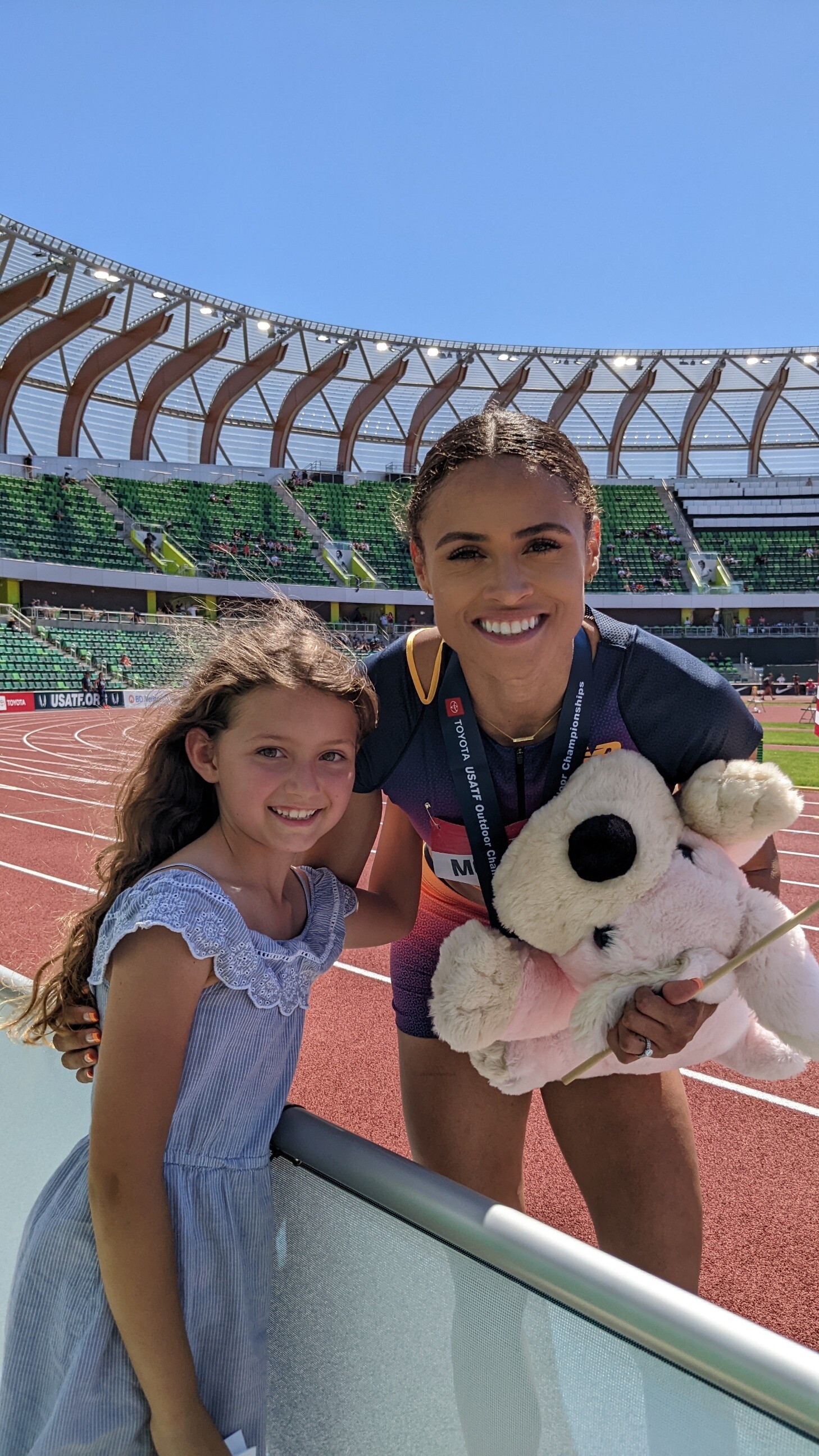
1. Melissa Jefferson — 10.69 2. Aleia Hobbs — 10.72 3. Twanisha Terry — 10.744. Tamari Davis — 10.785. Tamara Clark — 10.826. Celera Barnes — 10.86
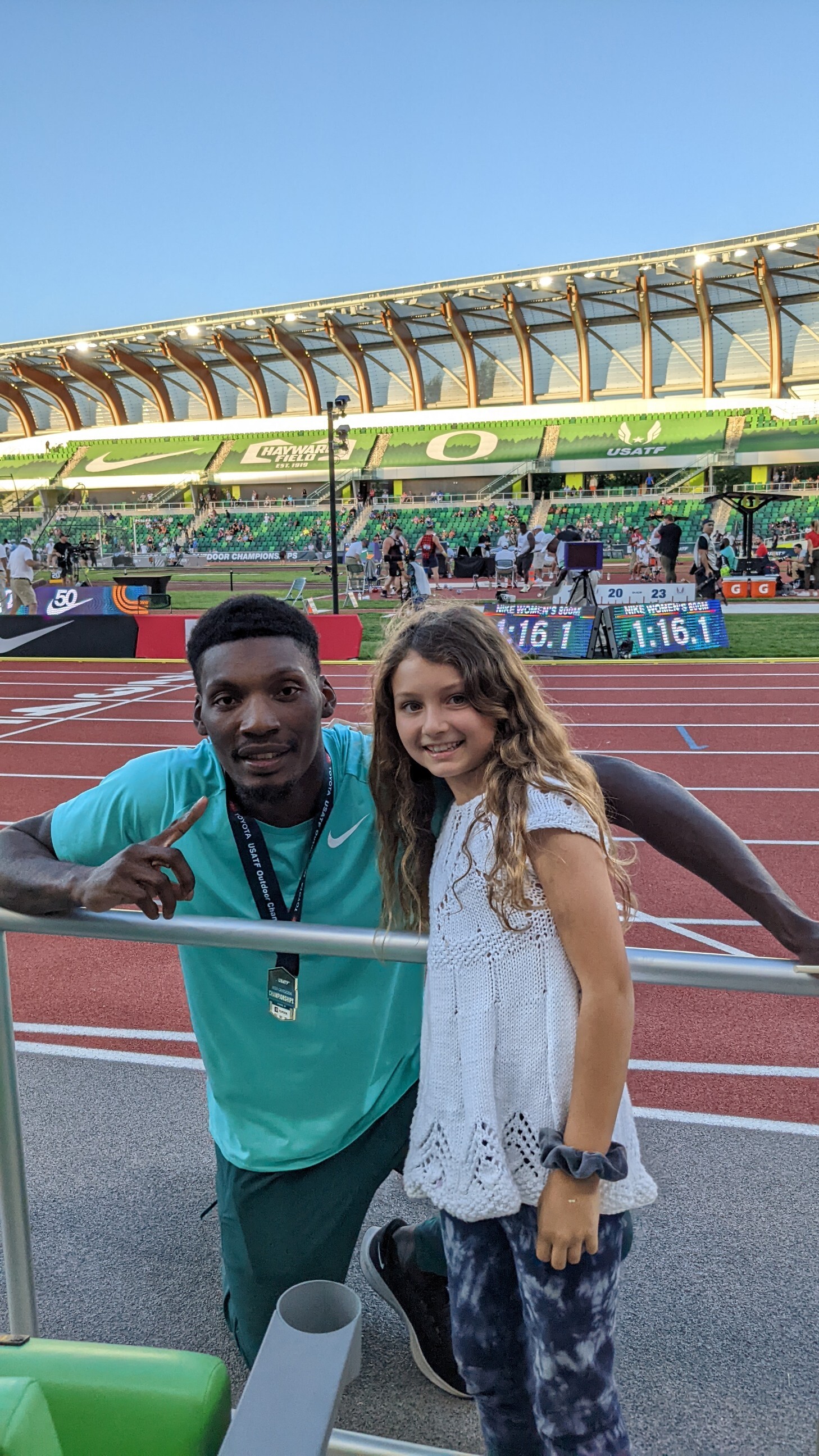
Women’s 400m
1. Talitha Diggs — 50.22 2. Kendall Ellis — 50.35 3. Lynna Irby — 50.674. Wadeline Jonathas — 50.845. Kennedy Simon — 50.906. Allyson Felix — 51.307. Jaide Stepter — 51.308. Kaylin Whitney — 51.31
Women’s 1500m
1. Sinclaire Johnson — 4:03.29 2. Cory McGee — 4:04.52 3. Elle St. Pierre — 4:05.144. Karissa Schweizer — 4:05.405. Heather MacLean — 4:06.40
Women’s 10,000m (from May 27)
1. Karissa Schweizer — 30:49.56 2. Alicia Monson — 30:51.09 3. Natosha Rogers — 31:29.804. Emily Infeld — 31:30.045. Weini Kelati — 31:39.90
Women’s 100m Hurdles
1. Keni Harrison — 12.34 2. Alaysha Johnson — 12.35 3. Alia Armstrong — 12.474. Tonea Marshall — 12.555. Tia Jones — 12.59DNS. Nia Ali (has bye onto world team)
Women’s 400m Hurdles
1. Sydney McLaughlin — 51.41 WR 2. Britton Wilson — 53.08 3. Shamier Little — 53.924. Anna Cockrell — 53.985. Shannon Meisberger — 55.39
Men’s 100m
1. Fred Kerley — 9.77 2. Marvin Bracy-Williams — 9.85 3. Trayvon Bromell — 9.884. Micah Williams — 9.905. Elijah Hall-Thompson — 9.906. Kyree King — 9.96DNS. Christian Coleman (has bye onto world team)
Men’s 400m
1. Michael Norman — 43.56 2. Champion Allison — 43.70 3. Randolph Ross — 44.174. Elija Godwin — 44.345. Vernon Norwood — 44.356. Bryce Deadmon — 44.547. Noah Williams — 45.048. Ismail Turner — 45.56
Men’s 1500m
1. Cooper Teare — 3:45.86 2. Jonathan Davis — 3:46.01 (doesn’t have standard)3. Josh Thompson — 3:46.07 (doesn’t have standard)4. Eric Holt — 3:46.15 (doesn’t have standard)5. Reed Brown — 3:46.28 (doesn’t have standard)6. Johnny Gregorek — 3:46.36 (has standard)11. Yared Nuguse — 3:47.46 (has standard)
Men’s 10,000m (from May 27)
1. Joe Klecker — 28:28.71 2. Grant Fisher — 28:28.81 3. Sean McGorty — 28:29.574. Dillon Maggard — 28:30.755. Shadrack Kipchirchir — 28:30.79
Men’s 3000m Steeplechase
1. Hillary Bor — 8:15.76 2. Evan Jager — 8:17.29 3. Benard Keter — 8:19.164. Duncan Hamilton — 8:20.235. Anthony Rotich — 8:23.15
Login to leave a comment
USATF Outdoor Championships
With an eye toward continuing the historic athletic success of 2022, USATF is pleased to announce competitive opportunities for its athletes to secure qualifying marks and prize money, including a new Grand Prix series, as they prepare for the 2023 World Athletics Championships in Budapest, Hungary.As announced a few months ago, the 2023 Indoor Championships in Nanjing, China have been...
more...3 Key Reasons Why Records Keep Getting Broken in 2021
It’s not just the shoes. But they certainly help.
The times have been spectacular across the globe.
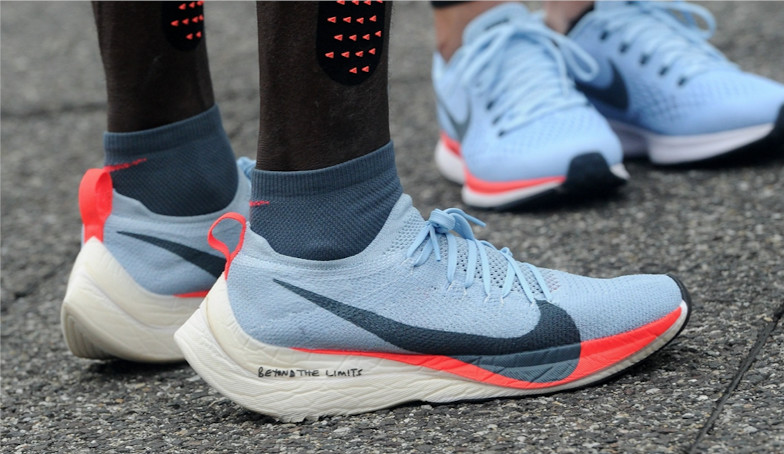
In Europe, four men broke the previous world half marathon record in December in Valencia, Spain. Earlier this month, Gudaf Tsegay of Ethiopia set a world record for the indoor 1500 meters on February 9, running 3:53.09 at a meet in Liévin, France.
Closer to home, Americans Sara Hall, Keira D’Amato, Martin Hehir, and Noah Droddy reshuffled the list of top 10 Americans in the marathon.
On the track, Donavan Brazier, Bryce Hoppel, Elle Purrier, and Grant Holloway have set American or world records.
High school and college athletes are in on the action, too. Hobbs Kessler set the high school indoor mile record with his 3:57.66, and Cooper Teare of the University of Oregon took almost 2 seconds off the collegiate mile record when he ran 3:50.39. Athing Mu at Texas A&M, who was thought to be an 800-meter runner, has been turning in world-class 400-meter splits and anchored her teammates to a collegiate record in the 4x400 meters.
What’s going on with all these fast times? Yes, there is new shoe technology, but it goes well beyond that for these record-shattering runners.
Shoe technology that changed road racing is now changing track racing
Back in 2017, when Eliud Kipchoge attempted for the first time to break two hours in the marathon on a racetrack in Monza, Italy, he wore a new type of shoe from Nike, the Zoom Vaporfly Elite. The shoes promised a 4 percent efficiency benefit, through a combination of a new type of foam, which was lighter and more responsive than previous foams, and a stiff carbon fiber plate to stabilize the foam and move the foot as it pushes off the ground.
Nike’s innovative design has evolved since 2017 and has been emulated, with varying degrees of success, by other shoe brands, like Saucony and Adidas. Now the same technology—better foam with a stiff plate inside—has moved into track spikes, said Geoff Burns, a post-doctoral fellow at the University of Michigan who is researching biomechanics and sport performance.
“The absolute effect may be a little bit smaller,” he said. “But because of the controlled environment and frequency of racing on a track, it’s much more apparent.”
Burns said that although Nike’s competitors are closing the gap, he hesitates to say that they’ve caught up. He praises Adidas and Saucony road shoes, and Adidas and New Balance for track spikes. “But if I were getting on a starting line, for a marathon or a track race, I would be in the Nike shoes,” he said.
Races are set up in near-perfect conditions
With the pandemic, the traditional lineup of road races and track meets has gone out the window, as race organizers have grappled with how to stage events safely.
In their place, pro runners, needing to race, have turned to time trials. And many of these are set up according to exact specifications.
Take The Ten, a track meet on February 20 in San Juan Capistrano, California. In two 10,000-meter track races, athletes—almost exclusively from the Bowerman Track Club in Portland, Oregon—were paced to try to get the Olympic standard in the event, which is 27:28 for men and 31:25 for women.
In the women’s race, Vanessa Fraser and Courtney Frerichs (the American record holder in the steeplechase), set a perfect pace, running 74- or 75-second laps. Fraser led for the first two miles, Frerichs took over and set the pace through four miles, 16 of the 25 laps. Her teammates could turn off their brains and follow behind. In the end, Elise Cranny won in 30:47 and five women hit the standard, four from Bowerman plus Eilish McColgan of Great Britain. The results of the men’s race were similar: Evan Jager and Sean McGorty paced, Marc Scott won in 27:10, and five runners achieved the Olympic standard.
“We are fortunate to have [teammates] who can pace a race for three or four miles,” said Marielle Hall, a Bowerman runner who finished fifth in 31:21. “That doesn’t happen that often. We’re pretty lucky.”
The Marathon Project, on December 20 in Chandler, Arizona, was similar in some ways. Organizers picked a perfectly flat U-shaped loop. Runners went up one side of a 2.1-mile stretch of road and back down the other. Pacers for the top men and women kept a steady pace through 18 miles. In the end, Martin Hehir ran 2:08:59, and Sara Hall ran 2:20:32. Hehir is now eighth on the list of fastest U.S. marathoners; Hall is second among women.
Athletes have benefited from long training blocks—and now they’re itching to race
In a typical season, many college runners race too frequently. They compete in three seasons—cross country, indoor and outdoor track. They might travel the country every other week, chasing top-level competition and in track, qualifying marks for nationals.
But that’s not the case this year. Last March, just as the pandemic was spreading across the country, the NCAA canceled indoor nationals. (Many athletes were already at the meet.) The outdoor season was quickly called off, and the cross-country season, which was supposed to happen in the fall of 2020, was pushed to winter.
The result? College runners have had long blocks of uninterrupted training time with little or no racing outside of team time trials. They’re eager to race again, and they’re reaping the benefits of the extended period of training.
Pros, too, may have benefitted from less racing than usual. And many have the feeling that finally, now that racing is back in some form, it’s time to run fast, especially in the buildup to the Olympic Trials. “The pent-up demand to have races — that definitely has something to do with it,” said Mark Coogan, coach of Team New Balance Boston, who coached Elle Purrier to a 9:10.28 American record in the two mile on February 13.
In a sense, track athletes have been forced to train as marathoners do, with long blocks of dedicated training toward one event, Burns said. “I think there could be enormous gains to track and field performances by taking the same approach: Hunker down and focus.”
Marielle Hall said that training and limited racing through the pandemic has been “all been just one giant experiment.” Bowerman workouts, designed by head coach Jerry Schumacher, are getting harder. Splits they aim for during interval workouts are faster. They do more reps. “Those kinds of things are constantly evolving, changing to fit people’s new fitness level,” she said. “It looks a lot more effortless than it is.”
by Runner’s World
Login to leave a comment
Elise Cranny (30:47) & Marc Scott (27:10) Win The TEN in California, Lead 10 Athletes Under Olympic Standard
The Bowerman Track Club had a good day as BTC athletes won both races and had four athletes in each race pick up the Olympic standard.
Women’s Race: Cranny Outkicks Schweizer to go to #3 all-time US
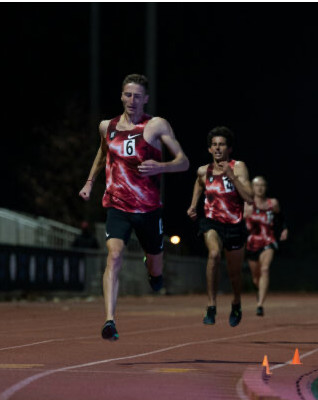
The Bowerman Track Club’s Elise Crannyused a 65.11 final lap to kick by teammateKarissa Schweizer to win The TEN tonight in 30:47.42 to Cranny’s 30:47.99 as the two women became the sixth and seventh US runners in history to dip under the 31:00 barrier for 10,000 meters. They are now the third- and fourth-fastest women in US history.
Britain’s Eilish McColgan also broke 31:00 in third in 30:58.94, just off the 30:57.07 personal best that her mom and coach Liz ran to win in Hengelo back in 1991, the year she won the 10,000 world title in Tokyo. 2015 world championship bronze medallist Emily Infeld (31:08.57) as well as Marielle Hall (31:21.78) also left tonight’s race with the 10,000 Olympic standard of 31:25.00. Hall already had it thanks to her 31:05 at Worlds in 2019; for Infeld, 30, her time was a 12-second personal best.
The race was very evenly run at almost exactly 75-second-per-lap pace for 7200 meters (22:28) with pacers Vanessa Fraser and then Courtney Frerichs leading through 6400. Four sub-75 laps after 7200 meters winnowed the lead pack down from four to two with three laps to go. Schweizer did all of the leading for the final 6+ laps until Cranny kicked by for the win in the final 50 meters. Cranny ran her last 1600 in 4:38.76 with lap splits of 72.59, 71.70, 68.75, 65.74
Men’s Race: Scott leads five men under Olympic standard
The Bowerman Track Club’s Marc Scott’s hot start to 2021 continued tonight as he ran 27:10.41 to win the men’s 10,000 and move to #2 all-time on the British 10,000 list. Scott wasn’t the only man leaving the race happy as the point of the race was to get the Olympic standard of 27:28.00 and all five men that finished the race were well under the standard.
In his 10,000 debut, Grant Fisher ran 27:11.29 for 2nd, meaning he’s now the 5th-fastest American in history. 12:58 man Woody Kincaid was third in 27:12.78 as Bowerman Track Club athletes swept the top 3 places.
Ben True, currently unsponsored, ran a big pb of 27:14.95 for 4th (previous pb of 27:41.17). And in the shock performance of the night, Harvard grad Kieran Tuntivate of Thailand ran 27:17.14 for 5th, meaning a guy who came into the night with a 13:57.60 5000 pb ran the equivalent of two 13:38’s back-to-back and is now #4 all-time in Asian history.
The race was rabbited perfectly through 8000 meters by Evan Jager and Sean McGorty. The field went through 5000 in 13:45 and McGorty hit 8000 in 21:57.85 (27:22 pace). After McGorty stopped at 8k, Scott did most of the leading although Fisher had the lead with 2 laps to go. Scott immediately picked up the pace and his final 5 laps were 64.18, 65.49, 64.62, 61.18 and 57.13, meaning he covered his last 1600 in 4:08.40 and last 2k in 5:12.58
by Let’s Run
Login to leave a comment
Moh Ahmed Amazes with 12:47 5K (3:58 Final 1600) as Lopez Lomong Becomes 9th American Under 13:00
2019 World Championship bronze medalist Moh Ahmed is truly among elite company now. Running in the Bowerman Track Club Portland Intrasquad II meet, just minutes after Shelby Houlihan lowered her American record (14:23.92) at 5,000m, Ahmed clocked 12:47.20 to smash his Canadian record (12:58.16) on Friday night. He became the 17th man to run under 12:50 for 5,000 meters and moved to #10 on the world all-time list. As impressive as the time was, it was the way he did it — an incredible 3:58.59 final 1600, with each lap faster than the previous one (61.34-60.31-59.48-57.45) — that truly resonated.
So great was Ahmed’s run that he made Lopez Lomong’s 12:58.78 runner-up effort look downright ordinary by comparison — despite Lomong, the reigning US champion, becoming just the ninth American to join the sub-13:00 club.
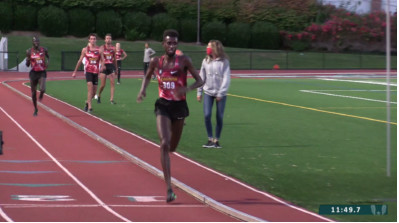
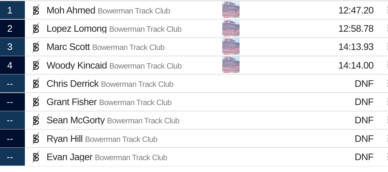
Afterwards, Ahmed said he really wanted to dip into the 12:40s, saying he saw the split with two laps to go (10:50.26) and thought “You can run 2:00.” Ahmed, who broke 13:00 for the first time last year, knew there was a big time gap between him and some of the other top guys in the world. Two years ago in Brussels, Selemon Barega ran 12:43, Hagos Gebrhiwet 12:45, and Yomif Kejelcha 12:46. Ahmed? He ran 13:03, which was then a PR.
“I saw those guys run 12:43 and how easy they made it look,” Ahmed said on the USATF+ broadcast.
Ahmed said he was “super nervous” before the race and despite running so fast said it’s been a “super challenging year.” “Right now I’m speaking to you, but I don’t know where the hell I am,” he told Paul Swangard.
Both Ahmed and Lomong benefited from some world-class pacemakers, with Bowerman Track club teammates Ryan Hill, Grant Fisher, and Evan Jager helping them through 1600 in 4:09 and 3200 in 8:18. Once the final pacer, Jager, stepped off at 3600, however, it was all Ahmed. This wasn’t exactly unfamiliar territory — Ahmed ran almost all of the way in last year’s fast Bowerman 5,000 in Beaverton that saw Woody Kincaid run 12:58. The question on many people’s minds that night was how fast Ahmed could have run had he stayed in the race. Tonight’s effort provided an answer of sorts.
by Let’s Run
Login to leave a comment
World bronze medalist Moh Ahmed and US champion Shelby Houlihan smash North American 5000m records in Portland
World bronze medallist Moh Ahmed and US champion Shelby Houlihan made significant improvements on the North American 5000m records at a low-key competition at Jesuit High School in Portland on Friday night (10).
Ahmed’s 12:47.20 took more than six seconds off Bernard Lagat’s continental record set back in 2011, while Houlihan’s 14:23.92 was a 10.53-second improvement on her own North American record from two years ago. Runner-up Karissa Schweizer also finished inside the previous continental record, clocking 14:26.34.
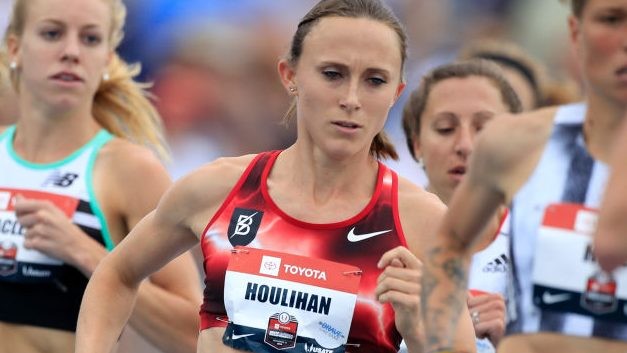
Organised by their training group, the Bowerman Track Club, the meet comprised just two 5000m races and the intention for both events was to provide the opportunity for fast times. Steeplechase specialist Colleen Quigley paced the early stages of the women’s race, taking the field through the first 1000m in 2:55.44.
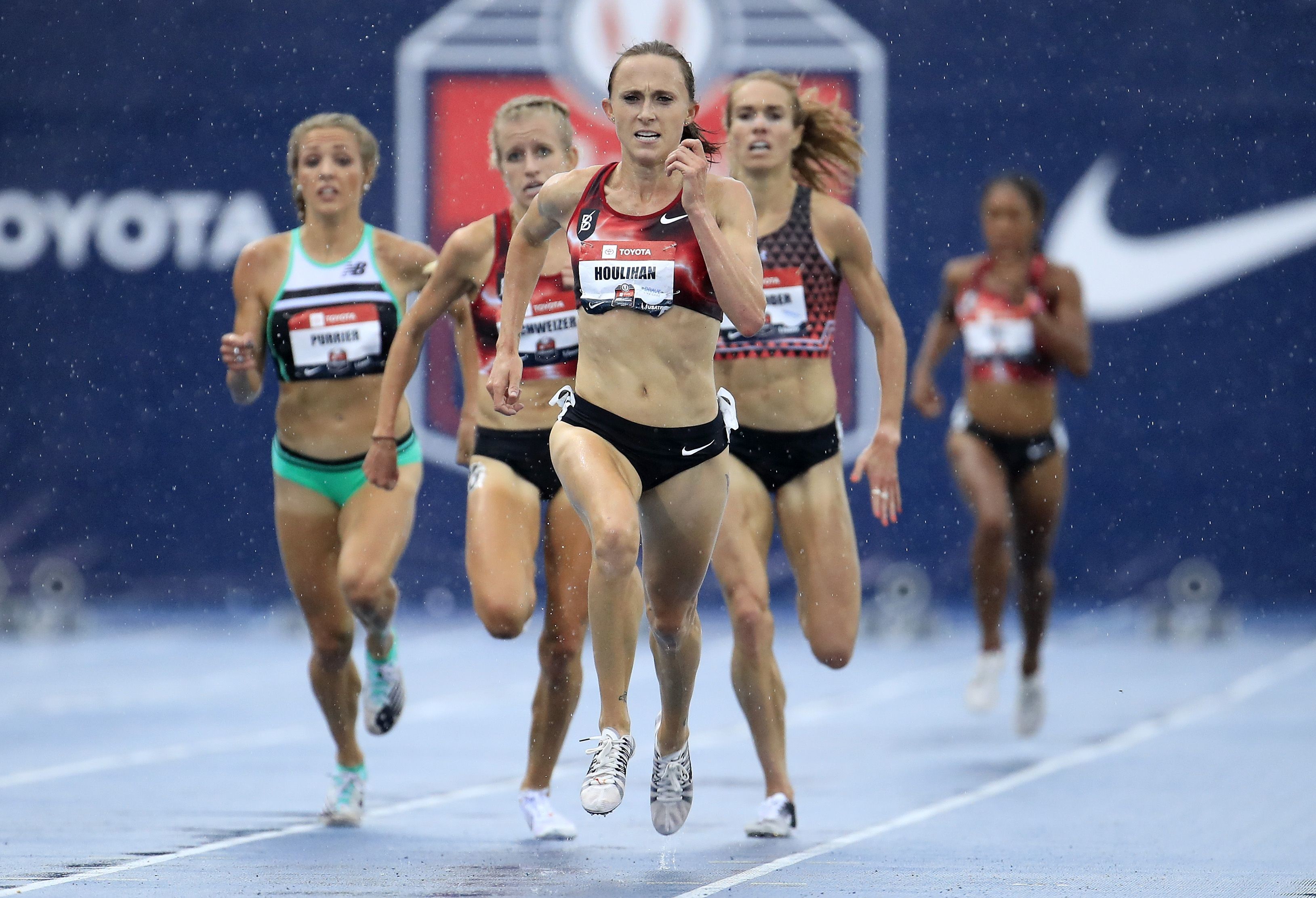
Fellow steeplechaser Courtney Frerichs, the 2017 world silver medallist, took up the running just before 2000m, which was passed in 5:51. Three women – Quigley, Marielle Hall and Gwen Jorgensen – withdrew at the 3000m point. Elise Cranny briefly led at that point, clocking 8:47.88 for her 3000m split, and was just ahead of Houlihan, but Cranny and Frerichs eased off for the final stages of the race, leaving just Houlihan and Schweizer out in front.
Houlihan drifted to the front with three laps to go and gradually started to increase the pace for the final kilometre. Schweizer managed to stick with her training partner until the final lap, which Houlihan covered in 61.4 seconds, giving her a finishing time of 14:23.92. Schweizer was second in 14:26.34.
“I knew Karissa was going to try to come up on me and take the lead, but I decided I was not going to let that happen,” Houlihan told usatf.tv after the race. “I just kept trying to fight her off and tried to have a big kick on the last lap.
“Karissa was in the race in Heusden two years ago where I set the previous record,” added Houlihan. “It’s been really awesome to have her as a training partner and to see how far she has come. She was only three seconds behind me today and I know she’s going to get that 5000m record at some point.”
The men’s race played out in similar fashion, with half the field helping to set the pace for the first 3000m before leaving Ahmed and Lopez Lomong to battle it out for victory.
Ryan Hill (2:36.2) and Grant Fisher (5:12) were the respective leaders for the first and second kilometres as Ahmed and Lomong sat in the middle of the pack. Fisher reached 3000m in 7:46.10, closely followed by Evan Jager and Sean McGorty, but they soon stepped off the track and Ahmed took up the running with three laps to go.
Ahmed then started to wind up the pace and broke away from Lomong on the penultimate lap, which he covered in 59.5. He moved up another gear and ran the final 400m in 57.45 to cross the finish line in 12:47.20, smashing his own Canadian record and moving to 10th on the world all-time list. Lomong, who narrowly missed out on breaking the 13-minute barrier last year with 13:00.13, finished second in a lifetime best of 12:58.78.
“Once I saw the way Shelby and Karissa attacked the last 600m, I told myself that I just had to do the same kind of thing,” said Ahmed, whose previous best was 12:58.16. “With two laps to go, the clock said 10:49 and I just thought, ‘you can run two (minutes) flat (for the final 800m)’. With 200m to go, I just tried to blast it as hard as I could.
“I’m excited, it’s something I’ve been working really, really hard for. It’s been an extremely challenging year, but luckily we have a good group and it was great to deliver this.”
by World Athletics
Login to leave a comment
After coronavirus forces postponement of 2020 Tokyo Olympics, elite athletes share their sorrow
Former University of Oregon sprinter English Gardner was looking at the big picture when the news broke Tuesday that the 2020 Tokyo Olympics were being postponed for a year because of the worldwide coronavirus pandemic.
Gardner has a 2016 Olympic gold medal from the Team USA women’s 4x100 relay and big hopes for Tokyo.
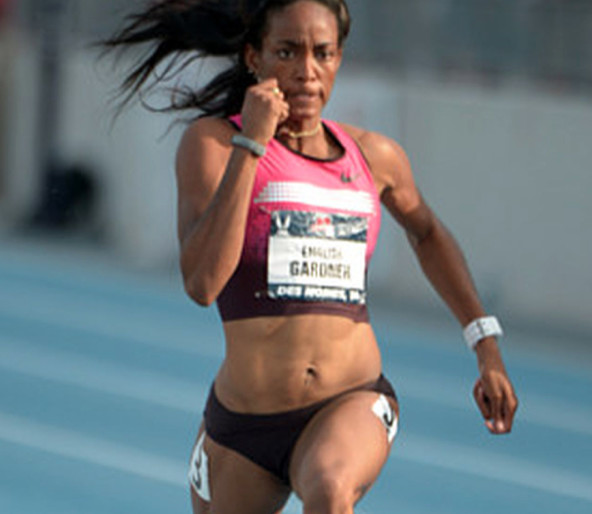
But she fully supports the decision by the International Olympic Committee and Japanese organizers to postpone.
“I’m bigger than track and field,” Gardner said. “I’m part of the community. I’m a human being. I’m a sister. I’m a mother. I’m a girlfriend. I’m a godmother. As a whole world, we’re kind of going through it right now. It’s OK that the Games got postponed because this problem, this illness, this sickness is way bigger than Tokyo.”
Gardner is among the Olympic-level athletes and coaches who spoke to The Oregonian/OregonLive on Tuesday about the postponement. They shared varying mixtures of relief, resignation, disappointment and hope for the future.
Shortly after the decision about the Olympics became public, the TrackTown USA local organizing committee announced the U.S. Olympic trials for track and field scheduled for June at Hayward Field in Eugene also had been postponed.
In most of the country, athletes are living in various degrees of social isolation as state, regional and municipal governments try to slow the spread of the virus. In many cases it has affected their ability to train.
Maybe worse has been the uncertainty of not knowing what the future holds and watching major sporting events be canceled or postponed, one after another. It seemed only a matter of time before the Olympics became the next domino to fall.
“I wasn’t super surprised,” said Shelby Houlihan of the Portland-based Bowerman Track Club and reigning USA Track & Field outdoor women’s champion in the 1,500 and 5,000 meters. “I figured it was probably going to happen. But it still kind of sucks.
“Obviously, it was probably for the best because of the situation we’re in. Safety should definitely be the No. 1 priority. But it does suck because I was ready for this year.”
Pete Julian coaches a Nike-sponsored, Portland-based team of elite distance runners who have been gearing up for the Olympics.
Julian’s group includes, among others, U.S. mid-distance stars Donavan Brazier, the 2019 world outdoor champion in the 800 meters, and Craig Engels, German star Konstanze Klosterhalfen and former University of Oregon runner Jessica Hull of Australia.
“I don’t think any of them are happy about the Olympics getting moved,” Julian said. “I think a lot of them feel they’re ready to go and believe they can win medals. They’re sort of kicking the post. They want to race.”
But Julian agrees with the decision to postpone. His message to his runners is they can be better in 2021 than they are now. He believes the Olympics can be too.
“I think Tokyo is one of the few cities in the world that could pull this off without a hitch,” he said. “I don’t think most of us can even imagine the logistical nightmare that this is going to create, and what the IOC and Tokyo will have to work through. But they will be able to do it, and it will be amazing.”
Evan Jager of the Bowerman Track Club is the 2016 Olympic silver medalist in the men’s steeplechase. He said he had a strong winter of training and liked his positioning heading into the outdoor season. But he believes this step back can turn to be a bigger step forward.
“Postponing it a year and having the Olympics as that light at the end of the tunnel is going to be a very positive thing to look forward to,” Jager said. “We can come out of this crisis a year from now, and hopefully be healthy. The Olympics can be a celebration of getting out of these dark times.”
Marathoner Galen Rupp said he planned to keep training and keep perspective.
The former University of Oregon star won an Olympic silver medal in the men’s 10,000 meters in 2012 and a bronze in the marathon in 2016. He already had made the 2020 U.S. Olympic team by winning the marathon trials on Feb. 29 in Atlanta.
“The health, safety and well-being of the global population are of the utmost importance and beyond any sporting event,” Rupp said. “Already so many people have gotten sick or died and so many more have been greatly impacted by the coronavirus. We need to listen to the advice of health experts.”
Even if that means going dark in 2020 and waiting a year so the coronavirus can be contained.
Gardner, the former UO sprinter who lives in New Jersey, said training has become difficult because of quarantine containment regulations. She joked she has to get creative to do track workouts because of padlocked facilities.
“I’ve been hopping a lot of fences,” she said. “I’ve been working on my long jump and high jump approaches.”
But turning serious, she said she endorsed the quarantines and social-distancing rules as a way to keep vulnerable family members safe. She said the Olympic postponement would protect athletes and fans.
“I was mostly concerned that we would calm the virus down, we all would go to Tokyo and spur it back up again,” Gardner said.
She said it could hit athlete housing in Tokyo the way an outbreak of the norovirus struck at the 2017 World Outdoor Championships in London.
“We share common eating rooms,” she said. “We all share the same tracks, the same weight rooms, the same hotels. It would just be a matter of time before it spurred back up again.“
by Oregon Live
Login to leave a comment
After postponement of 2020 Tokyo Olympics, elite athletes share sorrow, perspective
Former University of Oregon sprinter English Gardner was looking at the big picture when the news broke Tuesday that the 2020 Tokyo Olympics were being postponed for a year because of the worldwide coronavirus pandemic.
Gardner has a 2016 Olympic gold medal from the Team USA women’s 4x100 relay and big hopes for Tokyo.
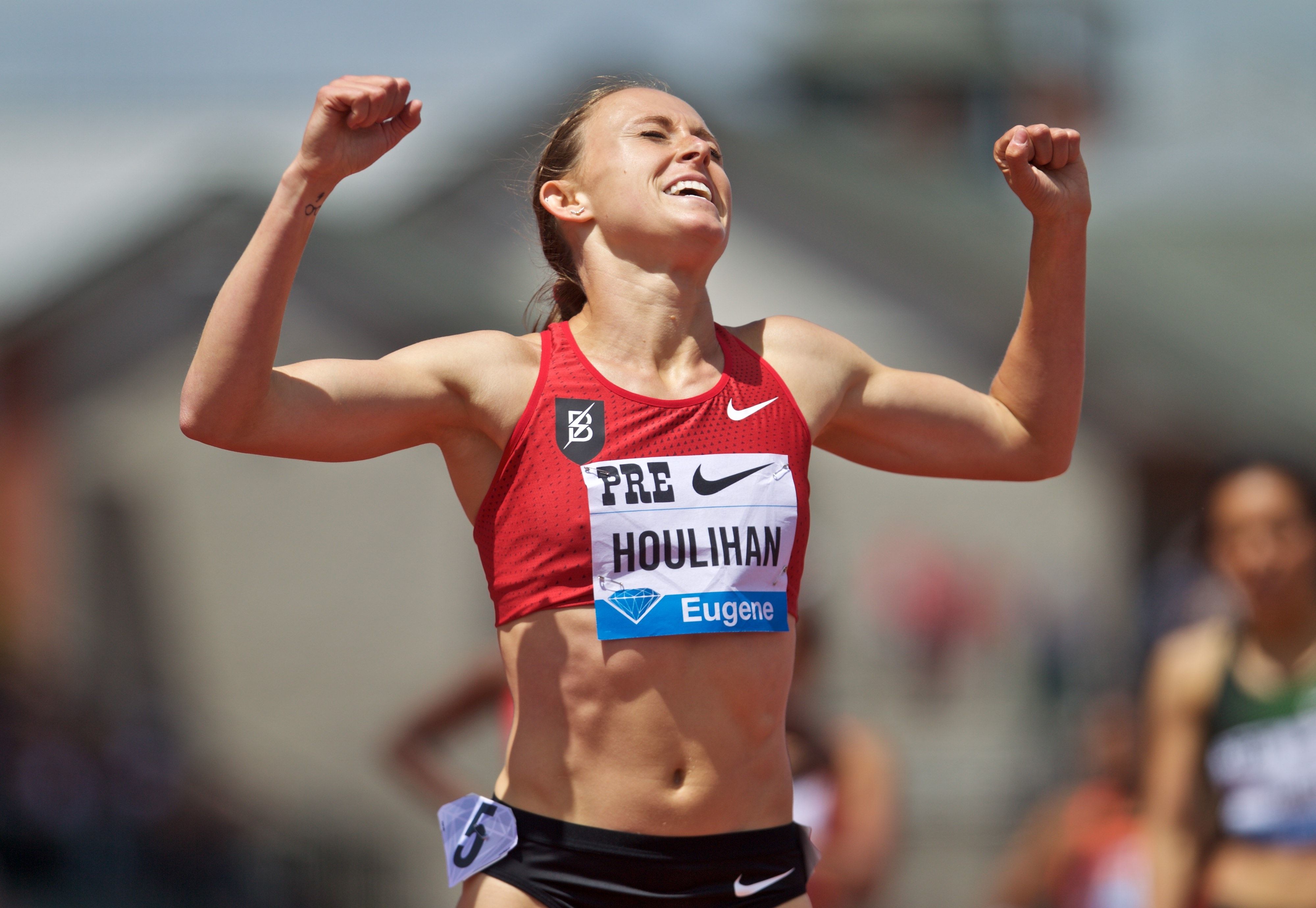
But she fully supports the decision by the International Olympic Committee and Japanese organizers to postpone.
“I’m bigger than track and field,” Gardner said. “I’m part of the community. I’m a human being. I’m a sister. I’m a mother. I’m a girlfriend. I’m a godmother. As a whole world, we’re kind of going through it right now. It’s OK that the Games got postponed because this problem, this illness, this sickness is way bigger than Tokyo.”
Gardner is among the Olympic-level athletes and coaches who spoke to The Oregonian/OregonLive on Tuesday about the postponement. They shared varying mixtures of relief, resignation, disappointment and hope for the future.
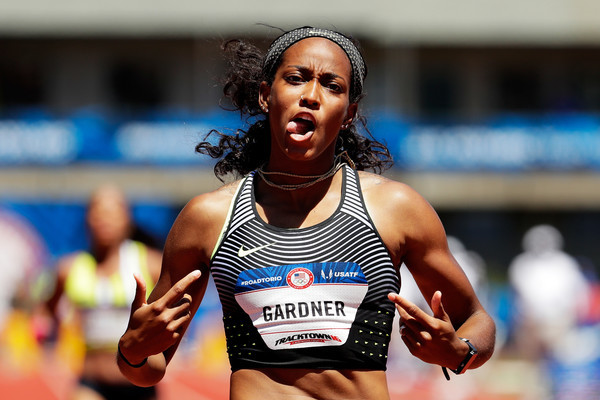
Shortly after the decision about the Olympics became public, the TrackTown USA local organizing committee announced the U.S. Olympic trials for track and field scheduled for June at Hayward Field in Eugene also had been postponed.
In most of the country, athletes are living in various degrees of social isolation as state, regional and municipal governments try to slow the spread of the virus. In many cases it has affected their ability to train.
Maybe worse has been the uncertainty of not knowing what the future holds and watching major sporting events be canceled or postponed, one after another. It seemed only a matter of time before the Olympics became the next domino to fall.
“I wasn’t super surprised,” said Shelby Houlihan of the Portland-based Bowerman Track Club and reigning USA Track & Field outdoor women’s champion in the 1,500 and 5,000 meters. “I figured it was probably going to happen. But it still kind of sucks.
“Obviously, it was probably for the best because of the situation we’re in. Safety should definitely be the No. 1 priority. But it does suck because I was ready for this year.”
Marathoner Galen Rupp said he planned to keep training and keep perspective.
The former University of Oregon star won an Olympic silver medal in the men’s 10,000 meters in 2012 and a bronze in the marathon in 2016. He already had made the 2020 U.S. Olympic team by winning the marathon trials on Feb. 29 in Atlanta.
Evan Jager of the Bowerman Track Club is the 2016 Olympic silver medalist in the men’s steeplechase. He said he had a strong winter of training and liked his positioning heading into the outdoor season. But he believes this step back can turn to be a bigger step forward.
by Ken Goe
Login to leave a comment
Tokyo 2020 Olympic Games
Fifty-six years after having organized the Olympic Games, the Japanese capital will be hosting a Summer edition for the second time, originally scheduled from July 24 to August 9, 2020, the games were postponed due to coronavirus outbreak, the postponed Tokyo Olympics will be held from July 23 to August 8 in 2021, according to the International Olympic Committee decision. ...
more...Korir Outsprinted Rupp to win USATF XC Championships
Login to leave a comment
U.S. Men’s Runner of the Year: Galen Rupp
Login to leave a comment


